Feed aggregator
Bearly Furcasting S3E31 - All Aboard!
MOOBARKFLUFF! Click here to send us a comment or message about the show!
Moobarkfluff! The train is off the tracks before we even get started! By the time we finish the train and the track are not even in the same state! We have a brief Furries in the News. Why are all the con dates changing? We make some This or That choices. Can bottles exist in 4 dimensions? Come spend some Furry Times with Bearly and Taebyn. Moobarkfluff!
Thanks to all our listeners and to our staff: Bearly Normal, Rayne Raccoon, Taebyn, Cheetaro, TickTock, and Ziggy the Meme Weasel.
You can send us a message on Telegram at BFFT Chat, or via email at: bearlyfurcasting@gmail.com
Horn of Plenty
[Hope you all had a Happy Thanksgiving with your loved ones!] Nobody’s Child is a new full-color graphic novel created by Massimo Rosi. “In an unspecified time in the future, it is discovered that within a special breed of albino rhinoceros there is a genetic code that holds the properties to regenerate man, that can cure all diseases, even those very serious. As a result, in a short period of time this albino rhino becomes nearly extinct, leaving just one: Sabium. Enter Bakari, a boy dealing with his own devastation, who now decides to dedicate his life to protecting this rhino.” It’s available now in paperback from Simon & Schuster.
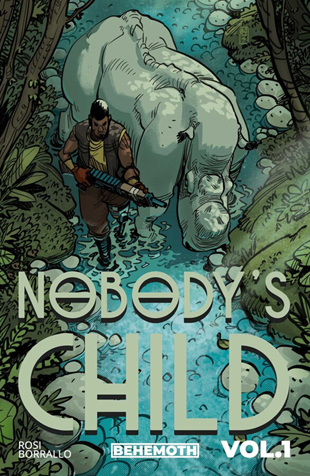
image c. 2022 Behemoth Comics
Becoming Anthro: Gene Mods for Furries | Fursuit Future Part 1

Can you finally BECOME YOUR FURSONA? Maybe sooner than you expect. This speculative glimpse into the sci-fi technology is the first installment of the four-part miniseries "FURSUIT FUTURE," where we will explore the possibilities of merging man and animal. This episode focuses on gene mods to transform you into a furry. Mad science correspondent: Nasi the Biology Gryphon https://www.youtube.com/c/entobird Staff writer: Tempo Merch, Sweet Tees and stuff: https://culturally-fd-merchandise.creator-spring.com/ Support Culturally F'd: https://www.patreon.com/culturallyfd Listen in on TEMPO TALKS with Tempe O'Kun https://www.youtube.com/playlist?list=PLIPk-itLl1jPyIK2c7mK-LpbvfDNqfcSW Check out Tempe O'Kun's books "Sixes Wild" and "Windfall" here: http://furplanet.com/shop/?affillink=YOUTU2907 Here's a playlist of his other Culturally F'd videos: https://www.youtube.com/playlist?list=PLIPk-itLl1jPS7tnT4hdJwBI-CeLF8Kb_
Furcon Age Policies
What age generally do you have to be to go to a furry convention? Is there a set age or what exactly?
Harry
* * *
Dear Harry,
Every convention I know of has an age policy. A typical one would be that if you are under 16 years of age you must be accompanied by a parent or legal guardian; if you are 16 or 17, you must have signed approval from a parent or guardian; if you are 18 and older, you're good to go. Sin City Murr Con in Las Vegas is, obviously, for 18 and older ONLY because of its very adult nature.
That is in the United States. Other countries are different. For example, I am led to understand that UK conventions do not allow minors at all. Same with Eurofurence in Germany and Furdu in Australia--you have to be 18. Asia cons can vary, I believe. For example, Furs Upon Malaysa allows furries as young as 13 to attend, but 13 to 17 year old furries must have an adult with them.
Anyway, you're likely only interest in U.S. cons, so short answer is you will need a parent to come with you. If you aren't sure, just visit the furcon's webpage and they will have the age policies posted there.
Bear Hugs,
Papabear
Celebrate the Ducks
Just in time for holiday wish lists, Disney and Dark Horse Comics bring us the Deluxe Edition of The Art of DuckTales, edited by Ken Plume. “Scrooge McDuck and nephews Huey, Dewey, and Louie are back in the 2017 remake of the classic series from Disney Television Animation, DuckTales! Now, find out about the making of DuckTales and read stories from the developers and cast covering every episode from all three seasons! The deluxe edition of the Art of DuckTales gives you all the content of the standard edition along with a slipcase that houses a gold-gilded version the book, an exclusive DuckTales Guidebook that contains expanded versions of the interviews with the crew and cast, and a finely-crafted replica of Scrooge’s Number One Dime!” Start wishing.
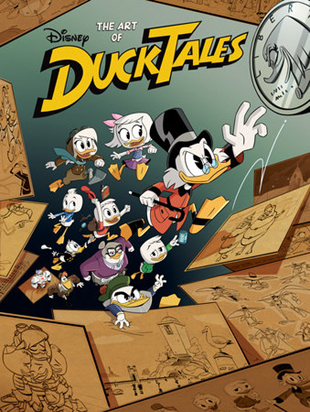
image c. 2022 Dark Horse Comics
The 10 Best Furry Anime You Need To Watch Now Copy
Article Content

- What Is A Fursona?
- Why Should I Make A Fursona?
- How Do I Start Making A Fursona?
- Is It Okay To Use Someone Else’s Fursona?
- What If I’m Drawing The Fursona Myself?
- How Do I Commission A Fursona To Be Made?
- How Do I Start Designing My Fursona?
- How Do I Decide My Fursona’s Colors?
- How Do I Accessorize My Fursona?
- How Do I Name My Fursona?
- What Do I Do With My Fursona Now?
Just in case you’ve been living under a rock, anime are Japanese animations and in quite a lot of them you can find humanoid / anthropomorphic creatures working alongside the main character. Whether it be to beat some unimaginably powerful force of evil or to find the meaning within, you can find some furry friends along the way in a lot of anime like Pokemon. But we’re not interested in the anime where these animals get sidelined for the main character to steal the limelight, furry anime are anime where the protagonists are the animals.
1. Kuma MikoKuma Miko is a 2016 comedy that tells the story of Machi Amayadori, a 14 year old girl who has spent her entire life living in the mountains with her guardian Natsu, a talking bear. Natsu is, as you could imagine, opposed to leaving their home but, getting sick of life in the mountains she believes she is ready to pursue a life in the big city and attend a high school. Is she ready for the urban lifestyle? What does Natsu even know about high school after spending so many years in the mountains?
You can watch this show on Funimation or, like a lot of the entries on this list, Crunchyroll.
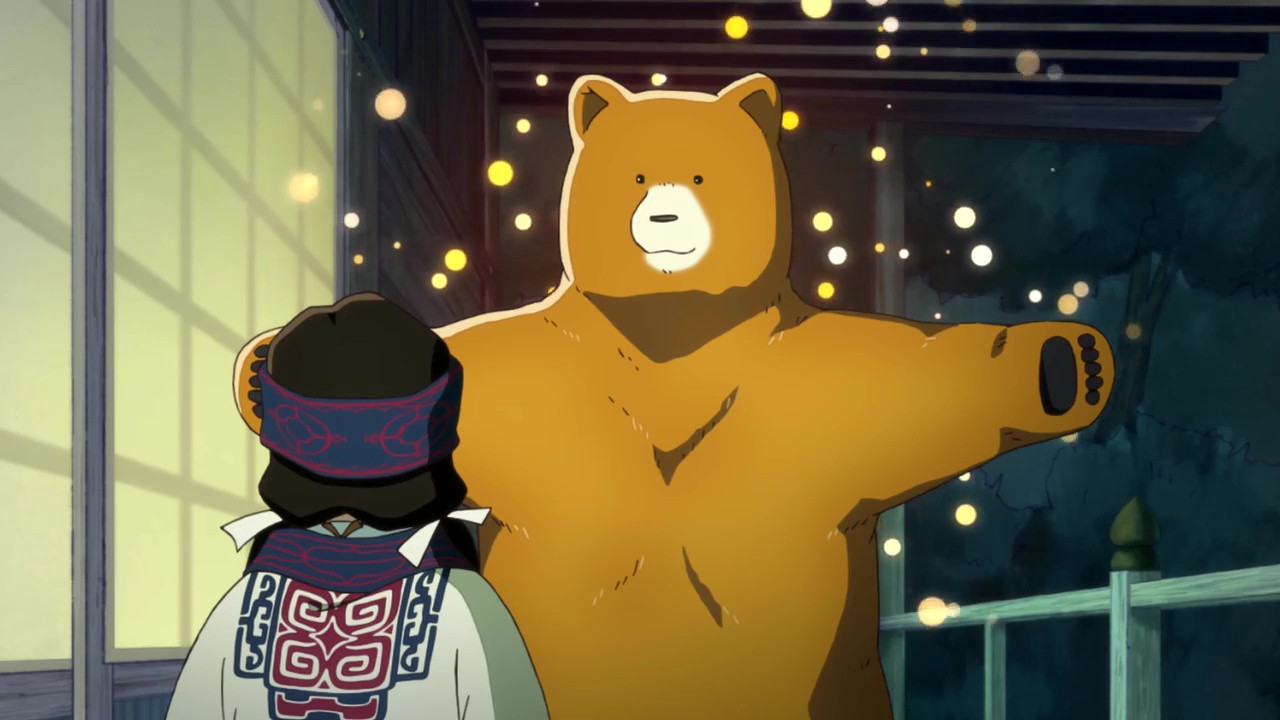
Natsu, The Talking Bear From Kuma Miko
Show Written by Masume Yoshimoto
2. Hyper PoliceHyper Police is a 1997 sci-fi comedy set in the distant future of the Tokyo ward of Shinjuku. It predominantly follows the lives of three characters: Natsuki Sasahara, Sakura Bokuseiinmonzeninari and Batanen Fujioka in a world where humanity is one the brink of extinction, the only thing holding it together being the work of rivaling private police organizations. Natsuki is a half human, half cat (more specifically nekomata) who works for Batanen’s police organization, Batanen is a werewolf and senior officer at said police company and Sakura is a kitsune and partner of Natsuki for some time. Can they stop the relentless crime of Shinjuku?
Unfortunately Hyper Police is not available on Crunchyroll or any major streaming platforms for that matter.
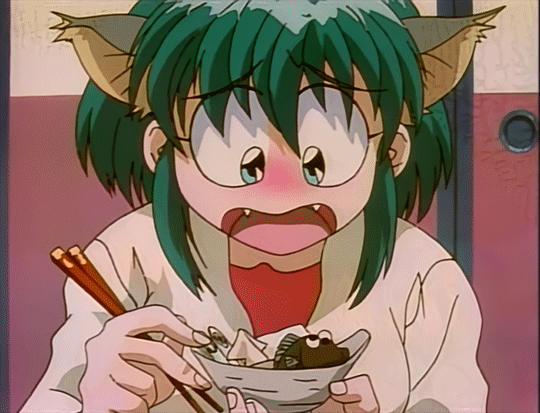
Natsuki Sasahara From Hyper Police
Show Written by Minoru Tachikawa
#banner_1 { border-radius: 16px; padding: 52px 68px; background-image: url(/wp-content/uploads/2022/10/banner_1_img.png); background-repeat: no-repeat; background-size: 100% 100% } .fursonafy_banner_inner { width: 100%; max-width: 390px; } .fursonafy_banner_p:nth-child(1) { margin-bottom: 20px; } .fursonafy_banner_title { font-family: 'Poppins'; font-style: normal; font-weight: 600; font-size: 18px; line-height: 22px; color: #1D022E; } .fursonafy_banner_feedback_mob { display: none; } .fursonafy_banner_review_com { font-family: 'Poppins'; font-style: normal; font-weight: 600; font-size: 16px; line-height: 20px; color: #454349; padding: 0; padding-left: 20px; position: relative; top: -8px; } .fursonafy_banner_review_person { font-family: 'Lato'; font-style: normal; font-weight: 700; font-size: 12px; line-height: 16px; color: #454349; padding: 0; padding-left: 20px; } .fursonafy_banner_fursonafy_btn { width: 100%; padding: 16px 28px; max-width: 197px; height: 52px; font-family: 'Lato'; font-size: 14px; line-height: 1; text-align: center; font-weight: 600; text-transform: uppercase; color: #FFFFFF !important; background: #BC2EFF; border-radius: 6px 0px 6px 6px; border: none; cursor: pointer; display: flex; justify-content:center; align-items:center; margin-top: 30px; position: relative; } .fursonafy_banner_fursonafy_btn:hover { background: #1D022E; transition: 1s cubic-bezier(0.57, -0.43, 0.37, 1.1); } .fursonafy_banner_black_point { position: absolute; width: 16px; height: 16px; top: 0px; right: 0; background: #1D022E; border-radius: 0px 0px 0px 12px; } @media (min-width: 769px) and (max-width: 1240px) { .fursonafy_banner_inner { width: 74%; } } @media (max-width: 768px) { #banner_1 { border-radius: 28px; padding: 30px 24px; background-image: url(/wp-content/uploads/2022/10/banner_img_mob.png); background-repeat: no-repeat; background-size: 100% 100% } .fursonafy_banner_feedback { display: none; } .fursonafy_banner_feedback_mob { display: block; } .fursonafy_banner_inner { width: 100%; max-width: 100%; text-align: center; } .fursonafy_banner_p:nth-child(1) { margin-bottom: 10px; } .fursonafy_banner_review_com, .fursonafy_banner_review_person { padding-left: 0px; } .fursonafy_banner_review_com { top: 0; padding-top: 12px; padding-bottom: 8px; } .fursonafy_banner_fursonafy_btn { max-width: 100%; } }BNA: Brand New Animal is an 80s influenced 2020 action, sci-fi anime beaming with neon lights in its vaporwave aesthetic revolving around a world in which humans coexist with what are known as Beastmen. These Beastmen are discriminated against for a gene called Beast Factor which allows them to transform into animals. The show follows the life of a girl called Michiru Kagemori who suddenly became a tanuki beastman after a blood transfusion, as you do. Following her blood transfusion, her friend Nazuna Hiwatashi is abducted, so naturally, she runs away, seeking refuge in Anima City, a safe haven for beastmen where she meets an employee of the city mayor, Shirou Ogami. Together they investigate what caused Michiru’s random transformation. As their investigation continues, the conspiracy of Anima City thickens, uncovering the darkest secrets of their society.
BNA: Brand New Animal is licensed by and available to watch on Netflix.
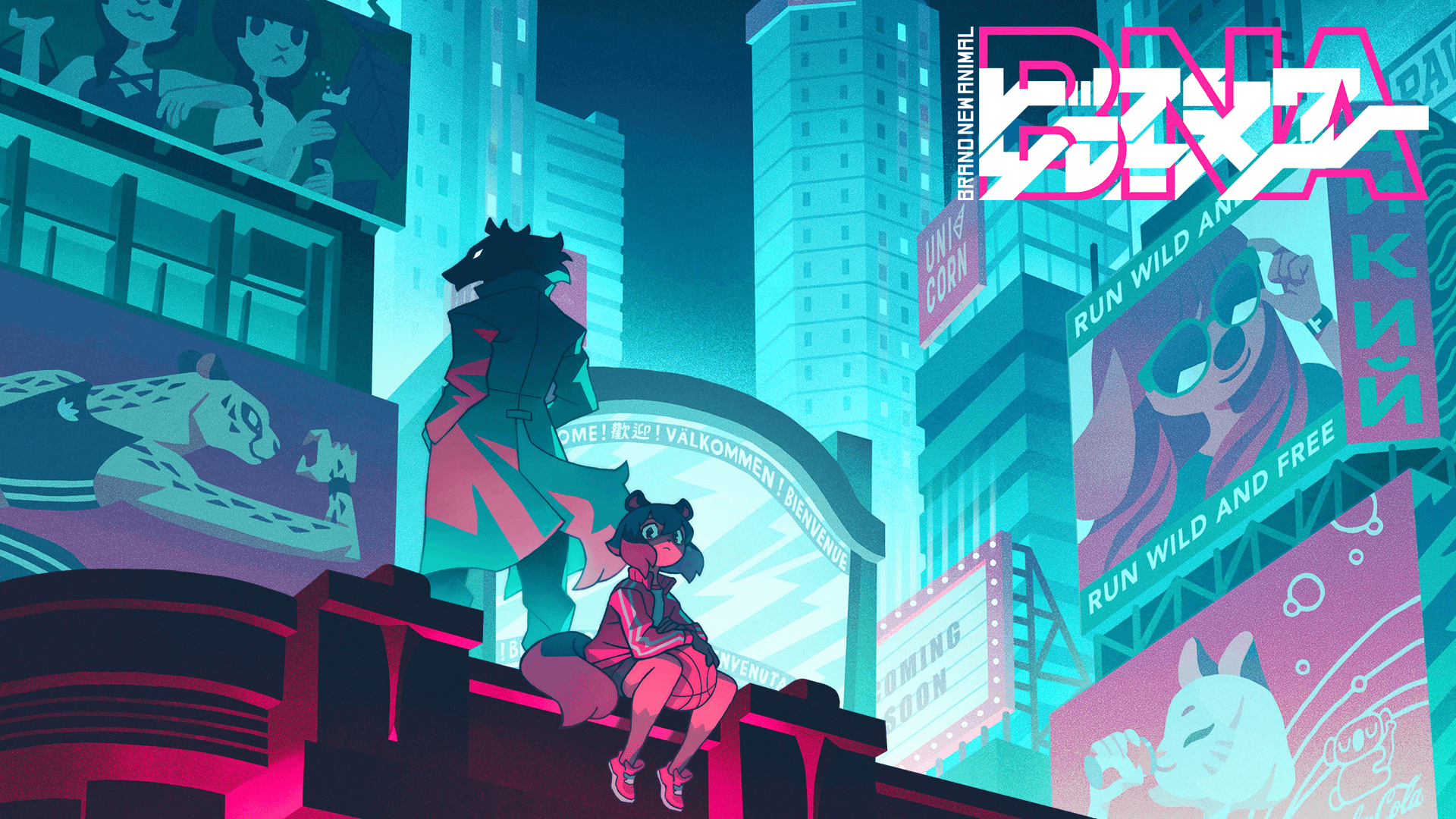
Michiru & Shirou BNA: Brand New Animal
Show Written by Kazuki Nakashima
4. African SalarymanAlso known as African Office Worker, African Salaryman is slapstick comedy following the monotonous 9-5 office life of a lion, a toucan and a lizard as they get caught up in far from normal office life antics. Being animals from the Savannah, you could probably imagine that office life isn’t perfectly suited for them and they make this no secret at all as a lion struggles to commit to his diet, a lizard attempts to learn party tricks to impress his coworkers and a toucan can’t wait for his summer vacation away from the old ball and chain. Everything about this show doesn’t make sense and its perfect like that, because it’s not supposed to.
You can watch African Salaryman on Funimation.
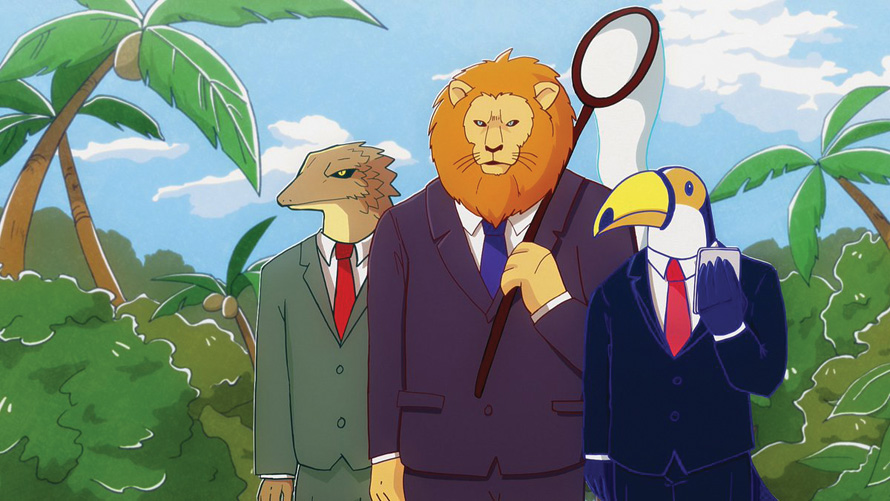
The Lion, The Toucan and The Lizard From African Salaryman
Show Directed by Tetsuya Tatamitani
5. Damekko DōbutsuThis show is kinda like reverse Zootopia. This 2005 comedy, in its almost chibi art style, tells the story of the “useless” wolf Uruno, who, rather than being unable to repress his savage desires, is actually unable to hunt and kill and is told he does not have any of the traits of a wolf. As a result of his timid behaviour, he’s sent to live in the forest with other equally “useless” animals where he meets Ushara, a loud mouthed and borderline aggressive rabbit. On his travels, Uruno meets several other animals who just do not fit the behaviour that is expected of them, like a clumsy cheetah, a devilish unicorn and a near-sighted eagle. Together they must work to regain their animal instincts and live up to their names.
Damekko Dōbutsu, like Hyper Police, isn’t available on any major streaming platforms.
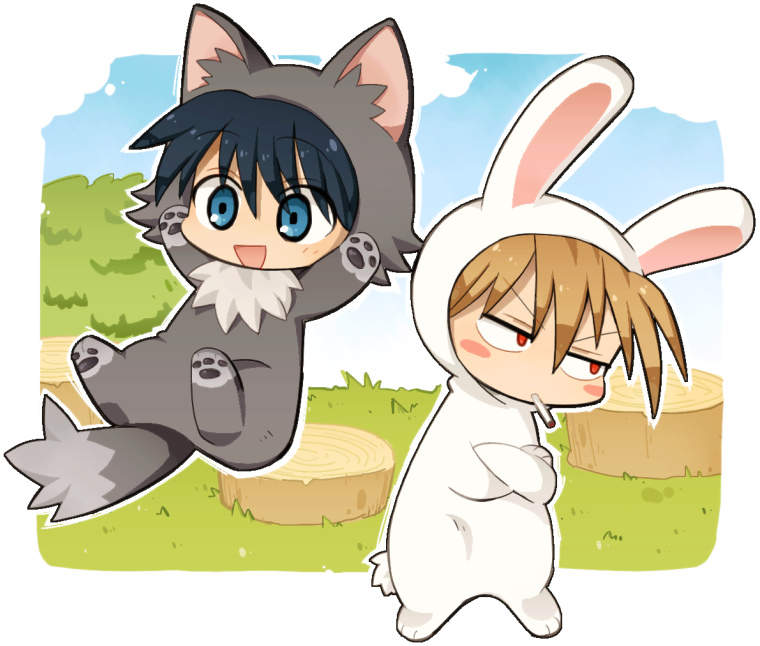
Uruno and Ushara From Damekko Dobutsu
Show Written by Noriko Kuwata
#7. SkunksOkay, so they smell a little bit… Well actually, they don’t. For the most part skunks smelling is just a stereotype because of their spraying defense mechanism, which I’ll admit, probably smells pretty bad. So, when Looney Tunes’ Pepe Le Pew makes the other characters turn green with nausea, just know, it’s all a hoax. However, most skunk fursonas will come in counter-shaded colors like black and white, brown and white, cream and black which are all examples of aposematism, or in Layman’s terms, warning coloration. Often the color palettes of skunks pop so much because it is nature’s way of saying “hey, if you mess with this guy, it’s likely going to end badly for you”. Similar traits can be seen in poison dart frogs or cuttlefish, as it’s not uncommon in the animal kingdom.
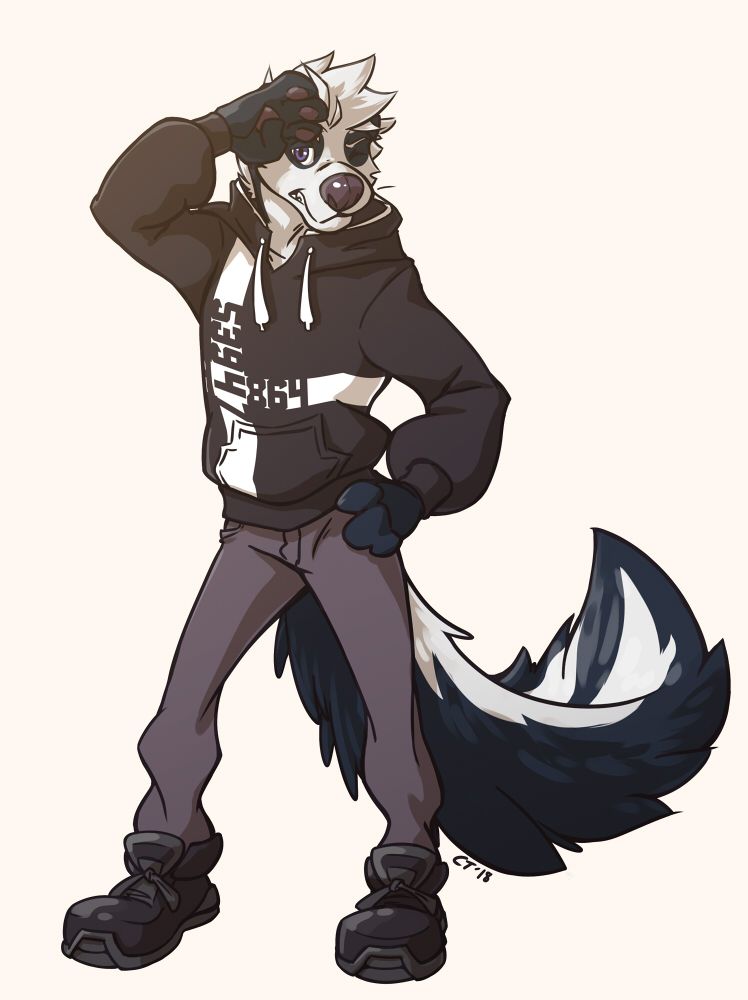
Skunk Fursona
Illustration by Chos via DeviantArt
#6. MarsupialsMarsupials refer to animals like kangaroos, wombats, koalas etc. and probably displays one of the most diverse pools of possible fursonas in this list. While they all do resemble rodent-like qualities, they are vastly different. The main difference is that they are “pouched mammals”, meaning they leave the womb at an embryonic stage and grow within the mother’s pouch for a while. This makes marsupials quite caring and maternal creatures when it comes to the females, but the males on the other hand seem to have more combative tendencies to say the least. Male kangaroos especially, likely because of their ability to bounce on their tail and box, are viewed as more defensive creatures, ready to protect what’s theirs with a good ol’ fashion scrap. I mean, just look at Tekken’s Roger and Roger Jr.
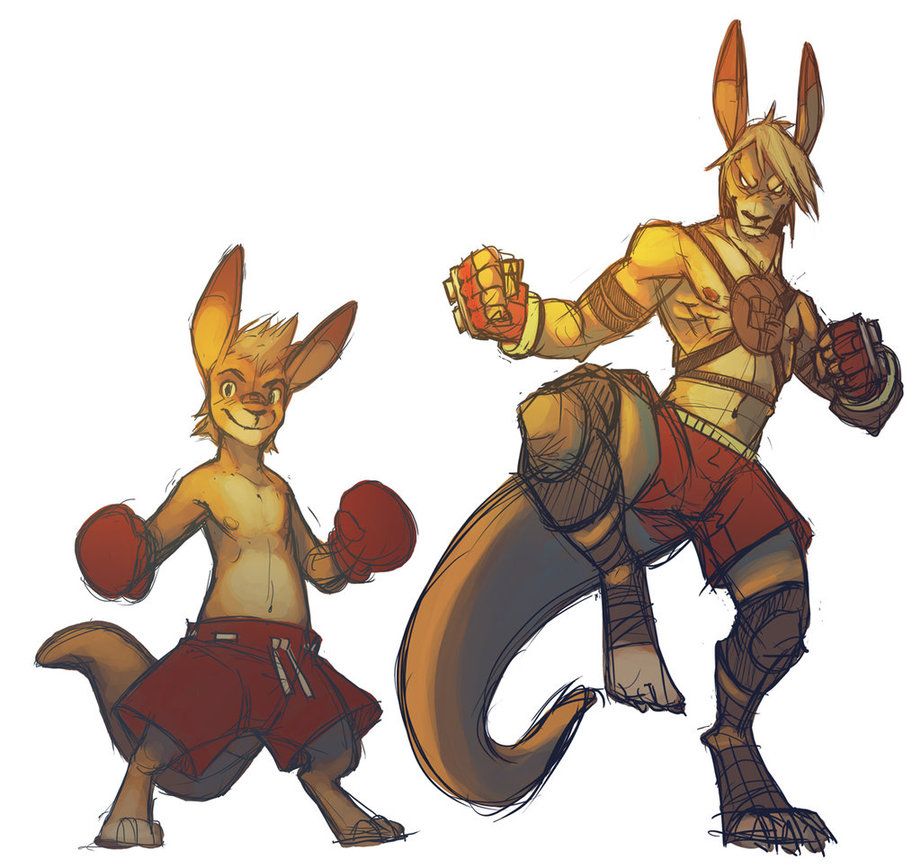
Kangaroo Fursona
Illustration by ben-ben via DeviantArt
#5. DinosaurAlthough they’re quite uncommon, there’s a good chance you’ve seen a dinosaur fursuit. They seem to be more common in the fursuiting community than the furry art community and they might be due to a few things. They likely aren’t used as fursonas very often due to their lack of “furriness” per say. They haven’t got the most lovable faces in the world nor do they have lovable personalities. They’re carnivorous and aggressive, a lot of them don’t work well in groups, it’s just a recipe for disaster. They’re big and scaly and while some artists definitely pull off the cute dinosaur look, it’s much easier to do so with a dog or a cat for example. Even shows like Jim Henson’s Dinosaurs (which, don’t get me wrong, is an amazing show) struggles to make the dinosaurs personable; the puppets come off as slightly unsettling and they slip too easily into the famous uncanny valley.
On the contrary, they have definitely got some things going for them. For one, not all dinosaurs are scaly creatures, in fact, a good portion of them have feathers, it was even recently discovered that the T-Rex had feathers, not scales. Furthermore, because dinosaurs vary so vastly in shape and size, it’s hard to put them in a box, just go on to furaffinity and search “dinosaur furry” and look at the thousands of results.
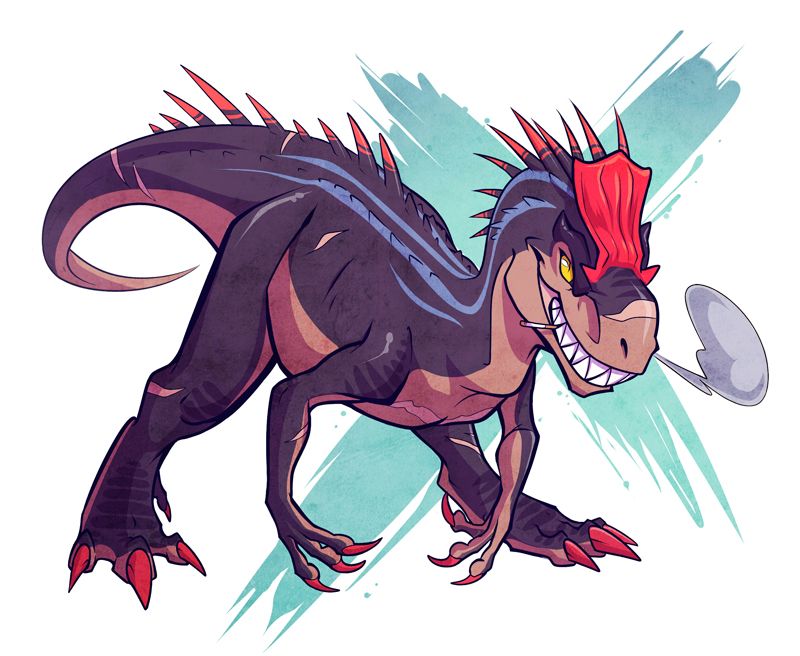
Dinosaur Fursona
Illustration by Squeedgeart via tumblr
#4. DeerBelonging to the ungulate family (odd-toed, hoofed animals), deers are much more timid animals. They’re not extremely sociable nor are they particularly loud animals. Making their most notable appearance in Disney’s Bambi, deer are extremely alert to danger and typically respond with flight in fight or flight situations.
Their shy behaviour leads many to believe that they are rare animals, when in actuality, they have quite a dense population Almost all male deer (apart from some like water deer) have antlers that are used to battle for mating purposes and despite popular belief, their antlers are not permanent, they shed and regrow every year. Female deer on the other hand, aside from reindeer, do not grow antlers as they rarely have use for them and they can make navigating forestry quite difficult.
Different types of deer vary greatly in size and stature but for the most part resemble each other quite closely. A moose for example, the largest species of deer, can grow to be around 2 meters in height while a roe deer typically doesn’t get taller than 75 cm.
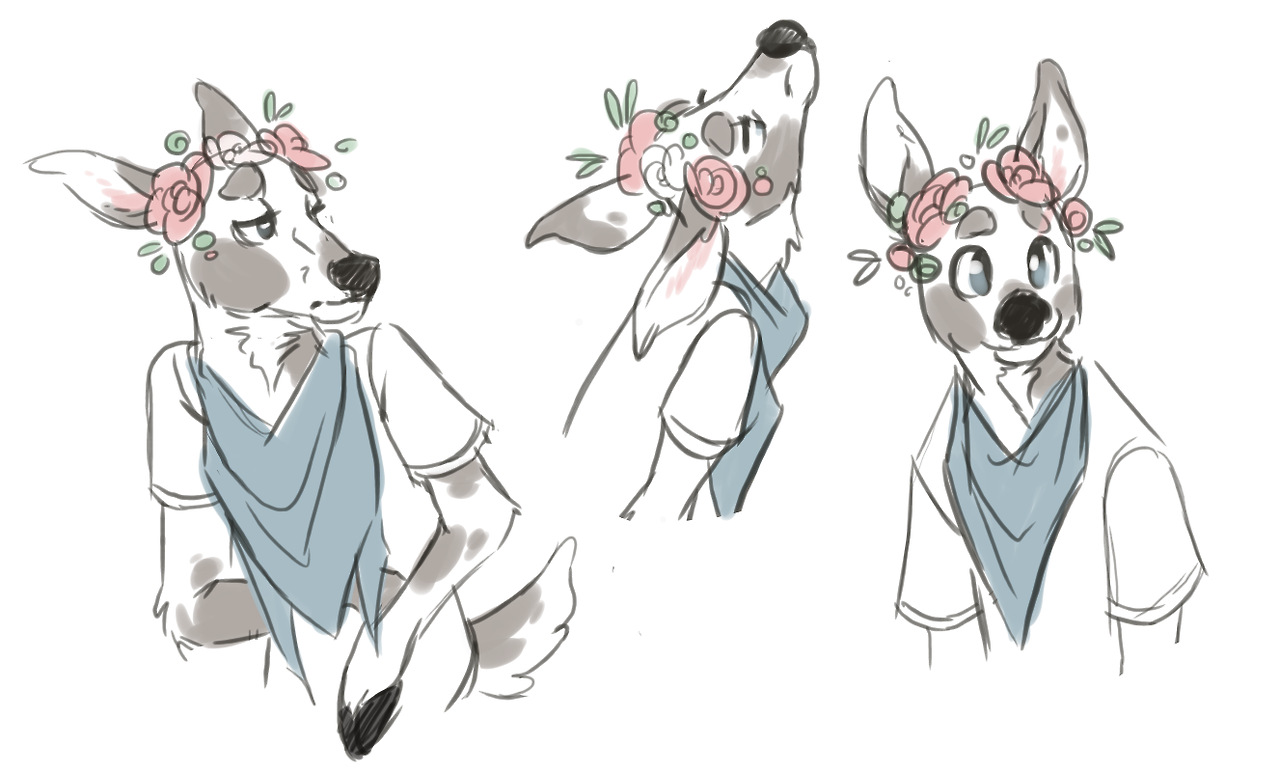
Deer Fursona
Illustration by tawnaduncan via tumblr
#banner_2 { border-radius: 16px; padding: 52px 68px; background-image: url(/wp-content/uploads/2022/10/banner_2_img.png); background-repeat: no-repeat; background-size: 100% 100% } .fursonafy_banner_inner { width: 100%; max-width: 390px; } .fursonafy_banner_p:nth-child(1) { margin-bottom: 20px; } .fursonafy_banner_title { font-family: 'Poppins'; font-style: normal; font-weight: 600; font-size: 18px; line-height: 22px; color: #1D022E; } .fursonafy_banner_feedback_mob { display: none; } .fursonafy_banner_review_com { font-family: 'Poppins'; font-style: normal; font-weight: 600; font-size: 16px; line-height: 20px; color: #454349; padding: 0; padding-left: 20px; position: relative; top: -8px; } .fursonafy_banner_review_person { font-family: 'Lato'; font-style: normal; font-weight: 700; font-size: 12px; line-height: 16px; color: #454349; padding: 0; padding-left: 20px; } .fursonafy_banner_fursonafy_btn { width: 100%; padding: 16px 28px; max-width: 197px; height: 52px; font-family: 'Lato'; font-size: 14px; line-height: 1; text-align: center; font-weight: 600; text-transform: uppercase; color: #FFFFFF !important; background: #BC2EFF; border-radius: 6px 0px 6px 6px; border: none; cursor: pointer; display: flex; margin-top: 30px; justify-content:center; align-items:center; position: relative; } .fursonafy_banner_fursonafy_btn:hover { background: #1D022E; transition: 1s cubic-bezier(0.57, -0.43, 0.37, 1.1); } .fursonafy_banner_black_point { position: absolute; width: 16px; height: 16px; top: 0px; right: 0; background: #1D022E; border-radius: 0px 0px 0px 12px; } @media (min-width: 769px) and (max-width: 1240px) { .fursonafy_banner_inner { width: 74%; } } @media (max-width: 768px) { #banner_2 { border-radius: 28px; padding: 30px 24px; background-image: url(/wp-content/uploads/2022/10/banner_img_mob.png); background-repeat: no-repeat; background-size: 100% 100% } .fursonafy_banner_feedback { display: none; } .fursonafy_banner_feedback_mob { display: block; } .fursonafy_banner_inner { width: 100%; max-width: 100%; text-align: center; } .fursonafy_banner_p:nth-child(1) { margin-bottom: 10px; } .fursonafy_banner_review_com, .fursonafy_banner_review_person { padding-left: 0px; } .fursonafy_banner_review_com { top: 0; padding-top: 12px; padding-bottom: 8px; } .fursonafy_banner_fursonafy_btn { max-width: 100%; } }Making their video game debut in Conker’s Bad Fur Day for the Nintendo 64, squirrely belong to the same family of animals as chipmunks and prairie dogs. You can see a whole catalog of other squirrely characters throughout time, but for some reason, they are still underrepresented within the furry fandom. You got the classics like The Nut Job, Ice Age, The Nut Job 2 Nutty By Nature, Secret Life of Pets and with The Nut Job 3 supposedly in the works, there’s just no telling what the future could look like for Squirrels in the furry fandom. We’re joking of course, but this is likely why there aren’t that many squirrel fursonas, making up less than 1% of fursonas, there’s just not many good examples of squirrels for people to base their fursona off of.
Luckily, we’re here to help. Squirrels typically have slender bodies with large eyes and a long bushy tail. This tail assists them with their balance as they jump from tree to tree. For the mostly tree-dwelling squirrels, they need great eyesight so that they can see where they are jumping. Like most rodents, they have large incisors (front teeth) for gnawing and can stuff their cheeks to store food. Squirrels can be both ground-dwelling and tree dwelling, the ground-dwelling squirrels being more sociable than the tree dwelling ones, who tend to take to more solitary lifestyles.

Squirrel Fursona
Illustration by User via Pinterest
#2. FerretUnlike a lot of the entries on this list, it’s hard to find a good example of a beloved ferret in cartoons. The best we could find was Scorch from 101 Dalmatians from like 60 years ago or with a bit of a stretch you could argue that the new Disney / Pixar film Turning Red is technically about a ferret because red pandas are closer to a species of ferret than they are bears, but that can get a little bit messy. Point is, there is no clear example of ferrets in mainstream TV, why is this?
Just to clarify, there (probably) isn’t some personal vendetta against ferrets by corporations, ferrets just don’t have very distinct qualities that would make you go “hey, that’s like a ferret”, or at least not to the unobservant eye. For one, they are not rodents, they belong to the weasel family with animals like stoats, polecats and ermines. They also aren’t recently domesticated animals, evidence shows that they have been domesticated for the past 2500 years and were used to hunt rabbits and rodents. Even in recent history, like the Second World War, they’ve been used to protect grain storage from small mammals. The name ferret derives from the Latin word furittus which means “little thief” which was likely given to them because of their habit of secretly hiding away small items.
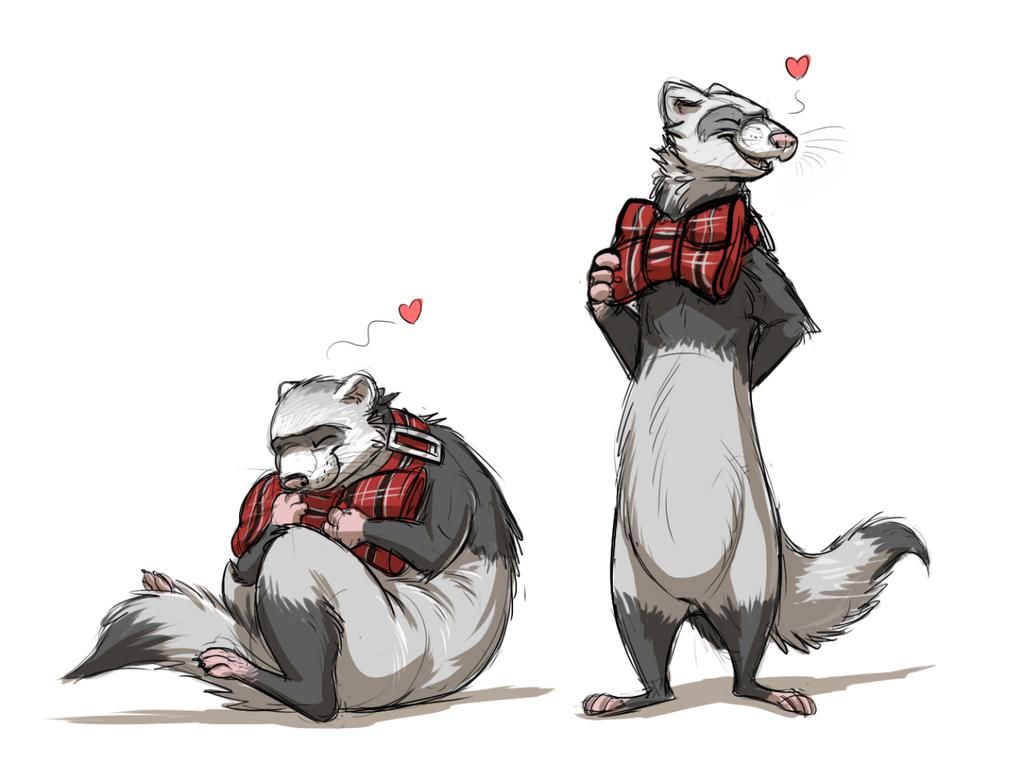
Ferret Fursona
Illustration by 

This one’s probably not a surprise to a lot of you, because let’s face it, insects are a hard sell. There’s no shame in having an insect as your fursona, but it’s easy to see why many don’t opt for them as their first choice. They’ve seen some limelight here and there like Kung Fu Panda’s Mantis or for some reason the late 90s to 2000s obsession with ants (A Bug’s Life, Antz, Ant Bully, like seriously, why are these so many ant movies) and they’re by no means unoriginal, but, they lack that furry factor. Aside from all the more reptilian furries, fursonas are predominantly physically furry characters most of the time with traits or features that resemble human qualities. They’re personable. Insects on the other hand are small, commonly feared and harder to observe than most animals.
However, it would be unfair to not shed some light on what it takes to be an insect, so here goes. An insect is most often identified by the fact that it has six legs and three body sections (head, thorax and abdomen). Just these qualities alone encompass hundreds of thousands, if not millions of different insects, from bees, to beetles, to butterflies. Look at any pokemon game for a good example of the hundreds of “bug type” creatures like Vespiqueen or Butterfree. Most insects live in colonies of the same insect like a nest of ants or a hive of bees likely because of their size and the threat they face when caught on their own.
If you want good examples of how to make an insect fursona, DeviantArt has a whole catalog of amazing artwork that can get you inspired. It’s definitely possible to pull off an insect fursona with a little bit of creativity.
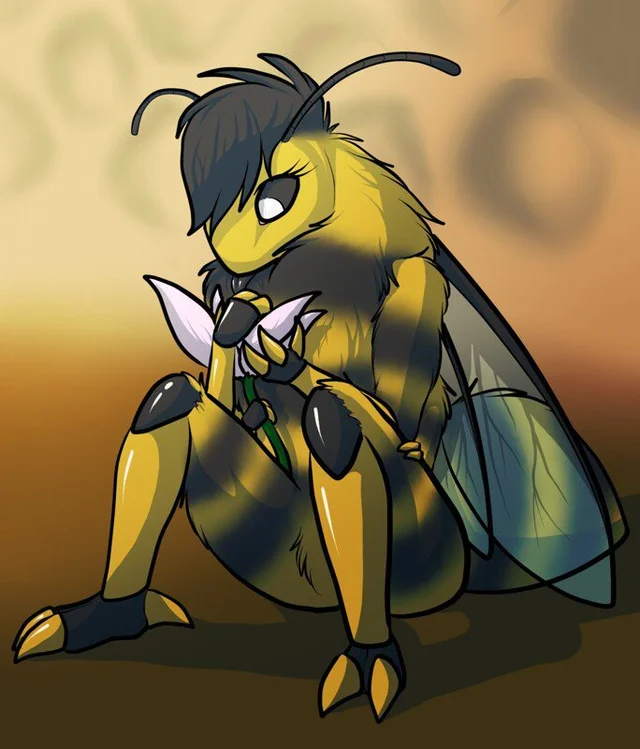
Bee Fursona
Illustration by PheonixBat via Furaffinity
What If My Fursona’s Species Isn’t Unique?Hopefully by now, you have a better gauge of the number of options you have when making a fursona. Even within these species, there are thousands of sub-species and breeds of animals that the list could just go on and on. Or maybe you’re overwhelmed for this exact same reason, so many options to choose from, and not enough time or creativity to execute all of them. That’s okay. There’s no shame in having any animal as your fursona, whether it be a wolf or an insect, after all, wolves are one of the most popular fursonas for a reason. Also, the most popular furry type is hybrid, because people struggle to decide on just one species and at the end of the day, your fursona is yours, you don’t have to make it to appease anyone but yourself.
Share PostThe post The 10 Best Furry Anime You Need To Watch Now Copy appeared first on Fursonafy.
TigerTails Radio Season 14 Episode 18

TigerTails Radio Season 14 Episode 18. Join the Discord Chat: https://discord.gg/SQ5QuRf For a full preview of events and for previous episodes, please visit http://www.tigertailsradio.co.uk. See website for full breakdown of song credits, which is usually updated shortly after the show. If you like what we do and wish to throw some pennies our way to support us, please consider sending a little tip our way. https://streamlabs.com/tigertailsradio/tip * Please note, tips are made to support TigerTails Radio and are assumed as made with good faith, so are therefore non-refundable. Thank you for your support and understanding.
One Cool Cat Who Rocks
Well here’s a description that’s going to catch a few furry fans’ attention: “Meet Joe Gomez. He’s got high school on lock – good grades, a cool band, and girls digging his vibe. But just when he’s got the world figured out, he goes and turns into a saber-toothed tiger. A shape-shifting nature spirit known as a Chimera, to be specific. Now Joe needs every single one of his new powers to help save the human race – whether he wants to or not.” That’s the idea behind Urban Animal, a new graphic novel by Justin Jordan and John Amor, published by Rocketship. Volume one is available now in paperback from Simon & Schuster.
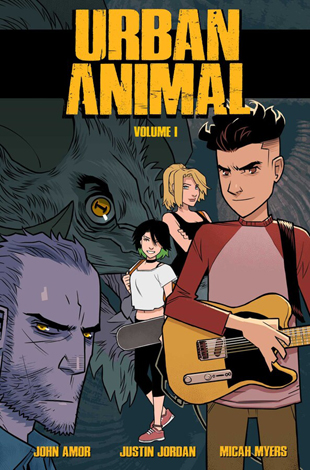
image c. 2022 Rocketship Entertainment
5 Tips To Make Biggest Little Fur Con A Great Experience
Article Content

- Why Do People Enjoy Being In The Furry Community?
- How To Make The Most Of BLFC
- Bring A Portable Charger
- Don’t Be Afraid To Mingle
- Be Conscious Of Your Body Language
- Be Conscious Of The Scents You’re Emitting
- Take Care Of Your Feet And Shoes
- Conclusion
It’s no secret that the furry subculture is experiencing an explosive renaissance. With internet access opening up to a larger audience and digital communication becoming more intimate, online communities have been able to flourish in a way that would not have been possible previously. One of the most prominent examples of this phenomenon is known as ‘Furry’. Furry culture is a collective term for people who identify with animals A growing number of these individuals gather together in real spaces and virtually through meet-up groups and social media platforms, such as Instagram and Telegram. One of the largest conventions catering specifically to furry enthusiasts is called Biggest Little Fur Con (BLFC). For those who aren’t familiar with the subculture, it may seem strange or even creepy to dress up as an animal or spend time with others who do so. However, there are many reasons why people find value in doing so.
Why Do People Enjoy Being In The Furry Community?The furry subculture is primarily driven by one concept: accepting and being comfortable with one’s desires. Yes, in a literal sense it’s not about that at all, but at its core, that is what keeps the furry community so tightly knit. People who are in the furry community may have an appreciation for cartoon animals, or they may just have an interest in fursuits and fursuiting. There is just such a wide breadth of things to invest yourself into in the fandom that it would be unfair of them not to be a welcoming community. The furry subculture provides a space where people who may feel repressed by society’s conceptions of sexuality and gender norms can let loose and be themselves. As the furry community has grown, more people are finding the language and terms to communicate their interests and desires. It may be the case that there is already a furry meet-up group near you. If not, there are many different ways to get involved with the furry community online. FurAffinity.net is the largest furry art website with a community of artists and fans from all over the world. There is also an active Traders Guild on the site, where you can find and purchase products from other members. Furry Amino is a social media platform that allows members to interact with one another and share their interests and desires.
Regardless, we’re here to discuss how you can make the most out of your time at the next Biggest Little Fur Con as well as some general housekeeping rules that you should follow just to make your time as enjoyable as possible.
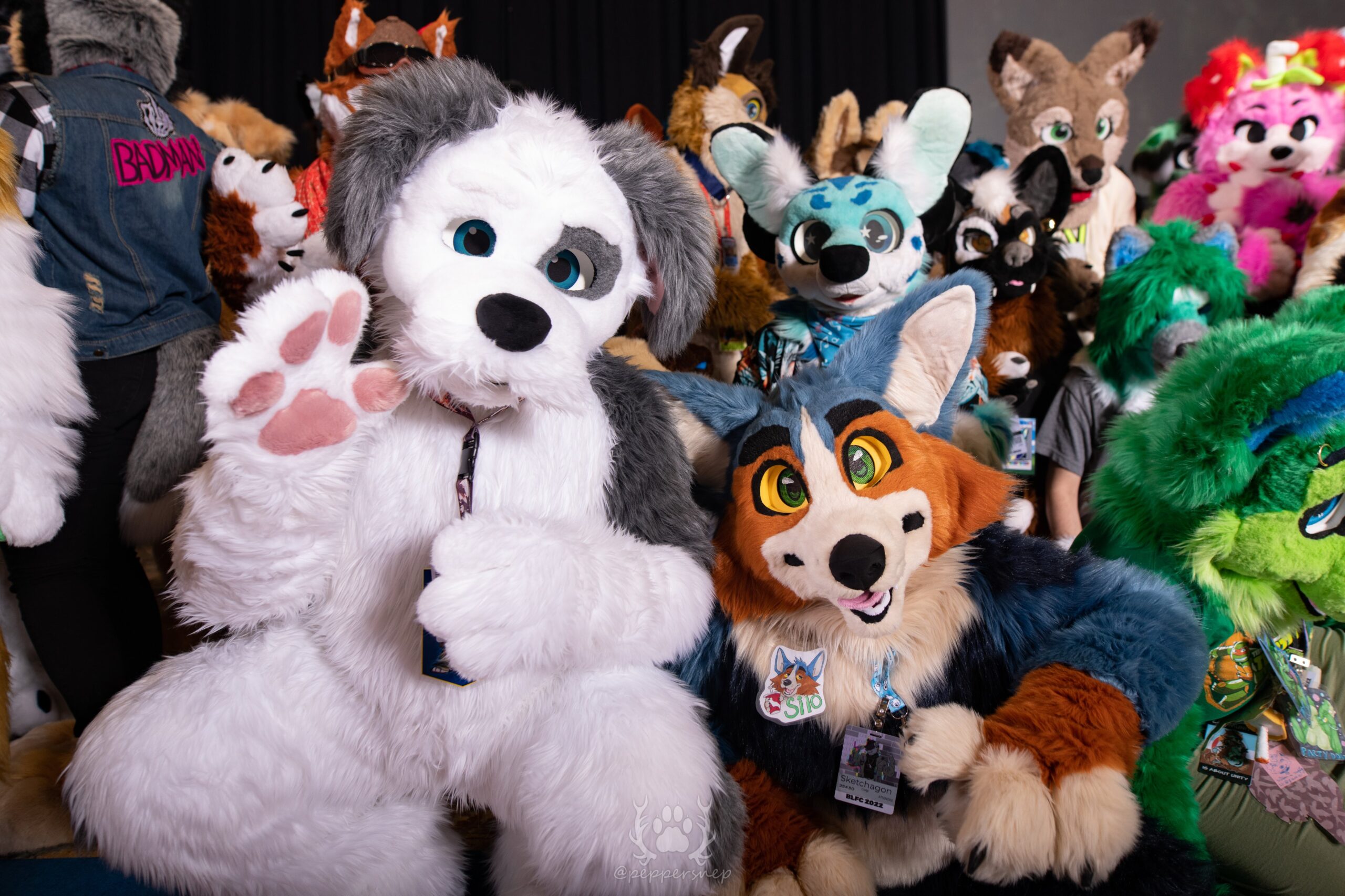
Biggest Little Fur Con 2022
Photograph via Twitter
How To Make The Most Of BLFCThe first thing to keep in mind is that the convention is primarily intended for socializing. While there are vendors, talks, and panels, you should approach them like you would attending a meet-up group: just to interact with others and learn more about the subculture. Keep in mind that most furry conventions are 18+ events, so there may be content you’re not interested in seeing or hearing. If you are under 18, then you will not be allowed to attend. This doesn’t mean that there’s going to be mursuits and furry porn flying around left right and center but it just means that the event managers acknowledge that it may not be the perfect environment for a minor. There is no shame in being underage and being curious, but be respectful of the rules of the event. Make sure to bring water and snacks with you to stave off hunger and dehydration. If you’re attending the convention with a friend or significant other, make sure to check in with each other to stay safe and have fun.
Bring A Portable ChargerIf you are going to be attending any event that requires you to be on your phone or computer for long periods of time (like any convention), be sure to bring a portable charger. Convention halls have notoriously terrible cell reception, and being able to keep your phone charged up to follow other attendees around the event and take photos is a must. You’ll be much less stressed out if your device isn’t about to die every five minutes.
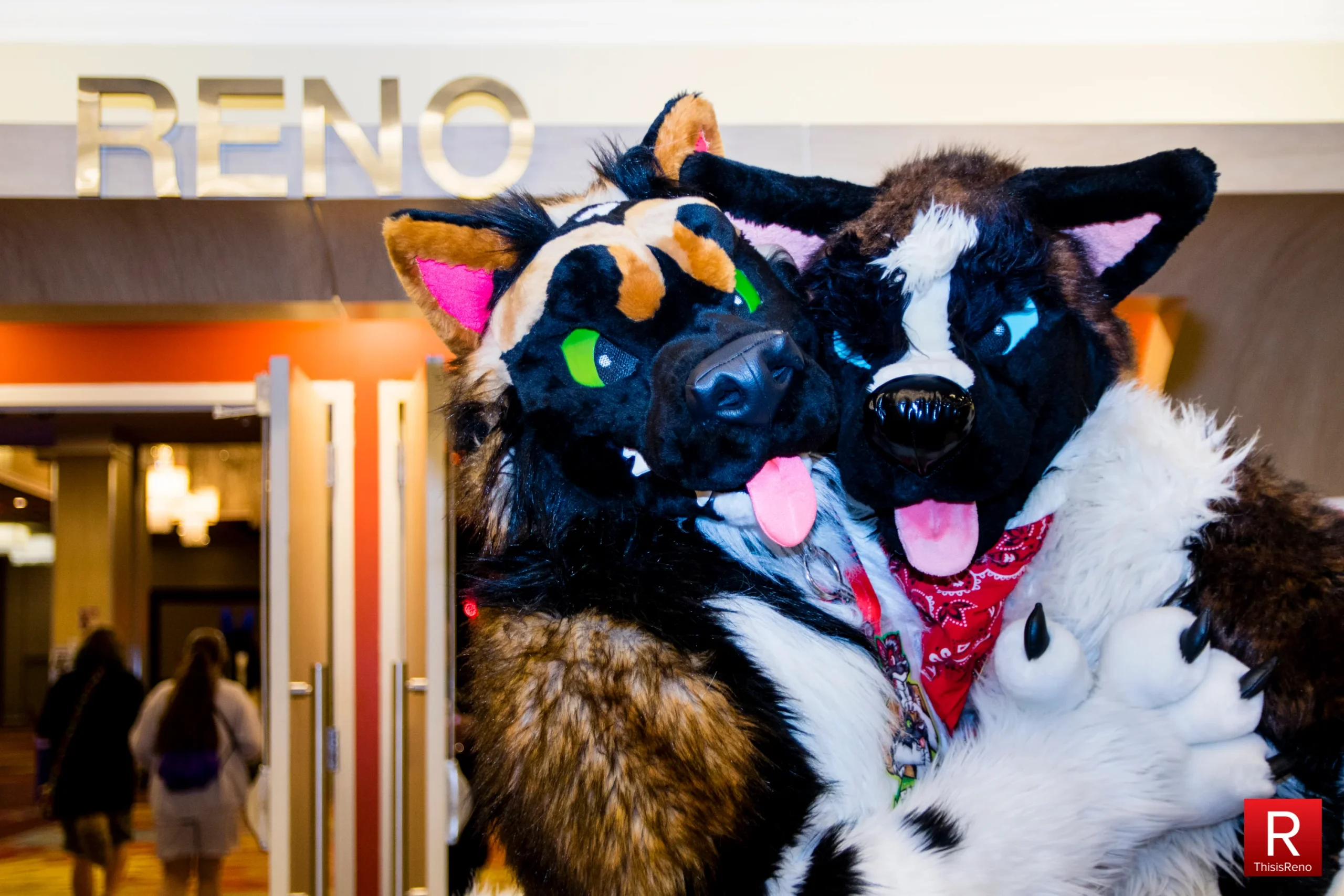
Two Fursuiters At Biggest Little Fur Con
Photograph via This Is Reno
Don’t Be Afraid To MingleThis might be the most important thing to take away from this post, but mingling is one of the most important and one of the most fun parts of furry conventions. We understand it can be terrifying having to speak to completely random strangers. Social anxiety and shyness are common in all subcultures but can be particularly prevalent in the furry community. If you are nervous about meeting other attendees, remember that the people you meet are just as nervous about meeting you. Furry conventions are a safe space for everyone to be themselves, and the people around you will appreciate your openness and welcoming attitude. Furry conventions are some of the only places in the world where you’ll probably meet other furries considering few there are and how much fewer of them are actually open about being a furry. So, take advantage of the meet-up groups and social media platforms to find people to visit with and explore the convention with.
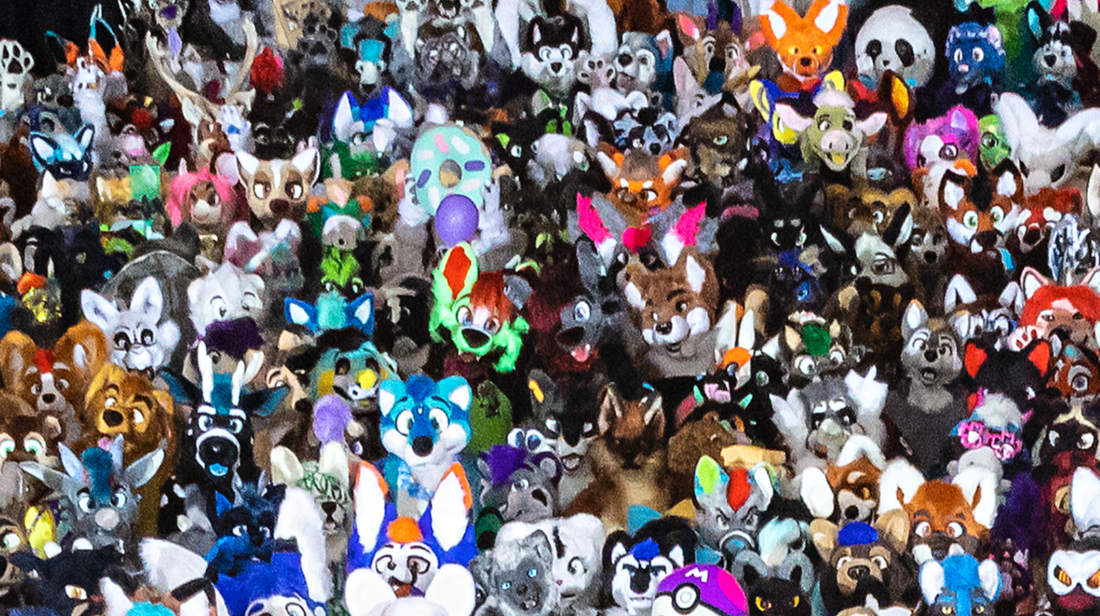
Biggest Little Fur Con 2018
Photograph via kuhorifursuit.weebly
#banner_1 { border-radius: 16px; padding: 52px 68px; background-image: url(/wp-content/uploads/2022/10/banner_1_img.png); background-repeat: no-repeat; background-size: 100% 100% } .fursonafy_banner_inner { width: 100%; max-width: 390px; } .fursonafy_banner_p:nth-child(1) { margin-bottom: 20px; } .fursonafy_banner_title { font-family: 'Poppins'; font-style: normal; font-weight: 600; font-size: 18px; line-height: 22px; color: #1D022E; } .fursonafy_banner_feedback_mob { display: none; } .fursonafy_banner_review_com { font-family: 'Poppins'; font-style: normal; font-weight: 600; font-size: 16px; line-height: 20px; color: #454349; padding: 0; padding-left: 20px; position: relative; top: -8px; } .fursonafy_banner_review_person { font-family: 'Lato'; font-style: normal; font-weight: 700; font-size: 12px; line-height: 16px; color: #454349; padding: 0; padding-left: 20px; } .fursonafy_banner_fursonafy_btn { width: 100%; padding: 16px 28px; max-width: 197px; height: 52px; font-family: 'Lato'; font-size: 14px; line-height: 1; text-align: center; font-weight: 600; text-transform: uppercase; color: #FFFFFF !important; background: #BC2EFF; border-radius: 6px 0px 6px 6px; border: none; cursor: pointer; display: flex; justify-content:center; align-items:center; margin-top: 30px; position: relative; } .fursonafy_banner_fursonafy_btn:hover { background: #1D022E; transition: 1s cubic-bezier(0.57, -0.43, 0.37, 1.1); } .fursonafy_banner_black_point { position: absolute; width: 16px; height: 16px; top: 0px; right: 0; background: #1D022E; border-radius: 0px 0px 0px 12px; } @media (min-width: 769px) and (max-width: 1240px) { .fursonafy_banner_inner { width: 74%; } } @media (max-width: 768px) { #banner_1 { border-radius: 28px; padding: 30px 24px; background-image: url(/wp-content/uploads/2022/10/banner_img_mob.png); background-repeat: no-repeat; background-size: 100% 100% } .fursonafy_banner_feedback { display: none; } .fursonafy_banner_feedback_mob { display: block; } .fursonafy_banner_inner { width: 100%; max-width: 100%; text-align: center; } .fursonafy_banner_p:nth-child(1) { margin-bottom: 10px; } .fursonafy_banner_review_com, .fursonafy_banner_review_person { padding-left: 0px; } .fursonafy_banner_review_com { top: 0; padding-top: 12px; padding-bottom: 8px; } .fursonafy_banner_fursonafy_btn { max-width: 100%; } }Humans are incredibly reliant on nonverbal communication, but many of us don’t think about how we’re communicating with others. Take a moment to sit back and think about your posture: are you slumping over or squeezing up? Are your arms crossed or are they open? Are you looking around at the people around you or are you staring straight ahead? You’ll find that most of these habits fall into one of two categories: either you’re putting up a wall against the world, or you’re desperately trying to get attention from it. To put yourself in the middle ground between these two approaches, sit up with your back straight, keep your arms at your sides, and make eye contact with the people around you. This may sound like a random tangent but it’s extremely important especially if you are wearing a fursuit. People no longer have the ability to read your facial expressions or anything about you when you are wearing a suit and your speech can become muffled and hard to understand. Therefore, the way you carry yourself is one of the main indications of how approachable you come off as.
Be Conscious Of The Scents You’re EmittingIf you’re wearing a strong cologne or perfume, you may be putting off a scent that is overwhelming or uncomfortable for those around you. While you don’t want to be scentless, it’s best to apply fragrances sparingly and be mindful of how they may be affecting others. If you have severe allergies, you may also want to keep a travel-size antihistamine on hand to help with sniffling and itching. If you are wearing a fursuit, be mindful of scents that may come off of your costume. While many fursuits are cleaned regularly, some are not. Keep in mind that the convention hall may not have the best ventilation, so be mindful of the scents you may be emitting. If you notice that a part of your costume is coming off on someone else, apologize and take care of it as soon as possible.
However, this isn’t to suggest you shouldn’t be applying any sort of deodorant to mask natural body odors because, as mentioned before, a lot of the conventions may not have great ventilation and those suits can get pretty hot pretty fast. This means you’re going to be baking in that suit, marinating in your own sweat which as you could guess probably doesn’t smell good to anyone.
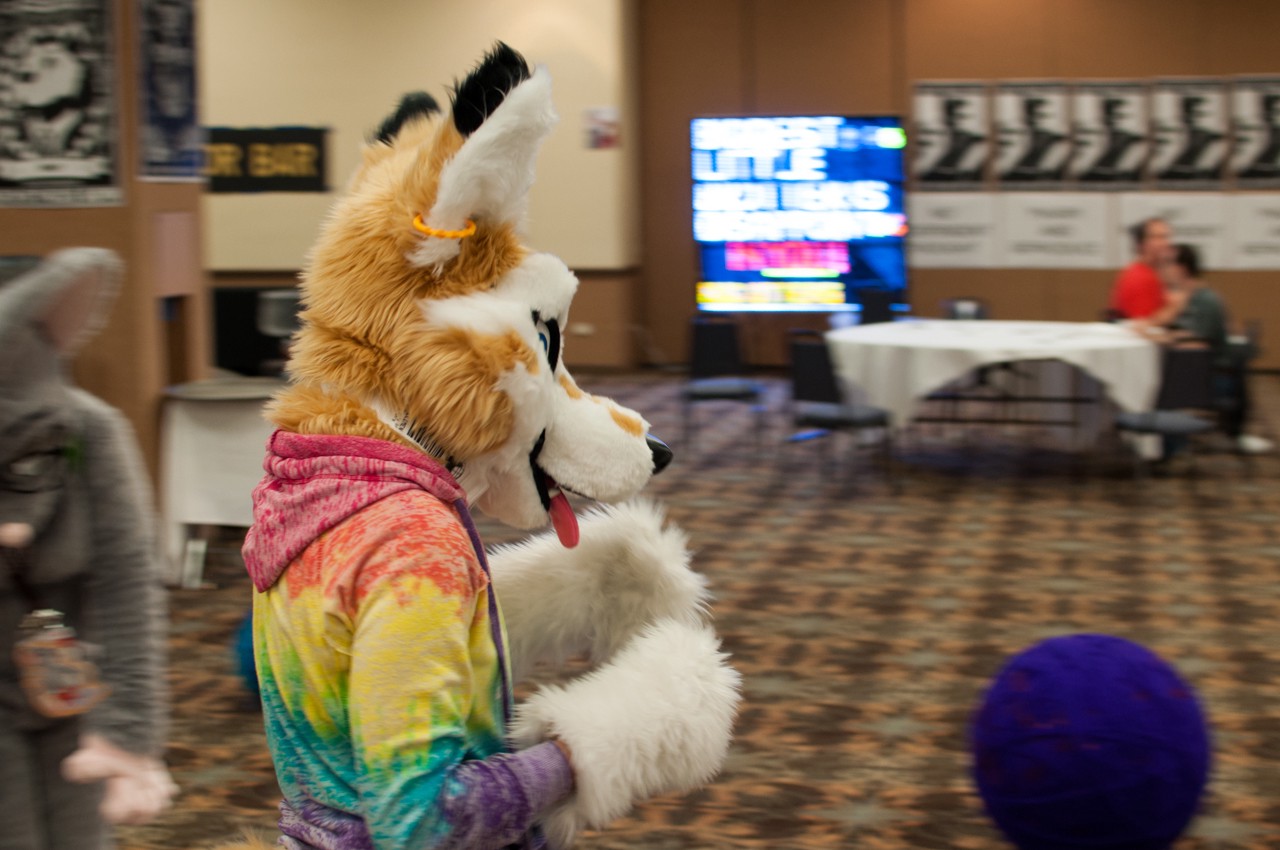
Biggest Little Fur Con 2015
Photograph via Medium
#banner_2 { border-radius: 16px; padding: 52px 68px; background-image: url(/wp-content/uploads/2022/10/banner_2_img.png); background-repeat: no-repeat; background-size: 100% 100% } .fursonafy_banner_inner { width: 100%; max-width: 390px; } .fursonafy_banner_p:nth-child(1) { margin-bottom: 20px; } .fursonafy_banner_title { font-family: 'Poppins'; font-style: normal; font-weight: 600; font-size: 18px; line-height: 22px; color: #1D022E; } .fursonafy_banner_feedback_mob { display: none; } .fursonafy_banner_review_com { font-family: 'Poppins'; font-style: normal; font-weight: 600; font-size: 16px; line-height: 20px; color: #454349; padding: 0; padding-left: 20px; position: relative; top: -8px; } .fursonafy_banner_review_person { font-family: 'Lato'; font-style: normal; font-weight: 700; font-size: 12px; line-height: 16px; color: #454349; padding: 0; padding-left: 20px; } .fursonafy_banner_fursonafy_btn { width: 100%; padding: 16px 28px; max-width: 197px; height: 52px; font-family: 'Lato'; font-size: 14px; line-height: 1; text-align: center; font-weight: 600; text-transform: uppercase; color: #FFFFFF !important; background: #BC2EFF; border-radius: 6px 0px 6px 6px; border: none; cursor: pointer; display: flex; margin-top: 30px; justify-content:center; align-items:center; position: relative; } .fursonafy_banner_fursonafy_btn:hover { background: #1D022E; transition: 1s cubic-bezier(0.57, -0.43, 0.37, 1.1); } .fursonafy_banner_black_point { position: absolute; width: 16px; height: 16px; top: 0px; right: 0; background: #1D022E; border-radius: 0px 0px 0px 12px; } @media (min-width: 769px) and (max-width: 1240px) { .fursonafy_banner_inner { width: 74%; } } @media (max-width: 768px) { #banner_2 { border-radius: 28px; padding: 30px 24px; background-image: url(/wp-content/uploads/2022/10/banner_img_mob.png); background-repeat: no-repeat; background-size: 100% 100% } .fursonafy_banner_feedback { display: none; } .fursonafy_banner_feedback_mob { display: block; } .fursonafy_banner_inner { width: 100%; max-width: 100%; text-align: center; } .fursonafy_banner_p:nth-child(1) { margin-bottom: 10px; } .fursonafy_banner_review_com, .fursonafy_banner_review_person { padding-left: 0px; } .fursonafy_banner_review_com { top: 0; padding-top: 12px; padding-bottom: 8px; } .fursonafy_banner_fursonafy_btn { max-width: 100%; } }If you’re going to be on your feet for a large amount of time, you’ll want to make sure that you’re taking care of your feet. You can do this by wearing comfortable shoes, keeping your toenails short and clean, and applying foot cream to your heels and other areas that may be prone to dryness. We’re not going to lie, standing around in a fursuit all day or even just standing around all day without the fursuit can get pretty tiring so it’s okay to sit down for a second just to rest your legs or take a break or whatever. Be mindful of where you’re walking and what you’re stepping in. If you’re wearing a fursuit that you’ve spent literally thousands of dollars on, the last thing you’d want is a piece of gum getting stuck within the fur of the suit that is just an absolute nightmare to get out. You’ll probably have to be extra careful if it happens to rain on the day of your attendance as it can become very easy to get mud on your suit. You may want to bring a pair of clean socks with you in case you end up stepping in something particularly gross. If you’re attending the masquerade, break in your shoes before the convention; you don’t want to be in pain while walking on stage.
ConclusionThe furry subculture is a unique and welcoming community, but it can be challenging to break into. We know that there are a lot of misconceptions and hate surrounding the fandom, so taking that big step can be quite daunting. However, if you just throw yourself into the deep end we are quite sure you’ll realize that most furries and even fursuiters are just normal people with a hobby like anyone else.
While many conventions have a larger population of younger attendees, BLFC is a convention that caters to the over-18 crowd. Even so, BLFC is a great place to meet people and get involved with the furry community. No matter who you are or what your interests are, there is a place for you in the furry community you just have to search in the right places.
Share PostThe post 5 Tips To Make Biggest Little Fur Con A Great Experience appeared first on Fursonafy.
Episode 529 - 28 Gallons
Ajax did the math.
Twitter continues to burn, Savrin had some fun, BLFC got put into an odd position, Qatar bans beer at the World Cup, and how the heck is it nearly US Thanksgiving?
Southpaws is creating and promoting The Queer Agenda | Patreon
LINKS
(1) Mosquito Capital on Twitter: "I've seen a lot of people asking "why does everyone think Twitter is doomed?" As an SRE and sysadmin with 10+ years of industry experience, I wanted to write up a few scenarios that are real threats to the integrity of the bird site over the coming weeks." / Twitter
Qatar Bans All Beer at 2022 FIFA World Cup (thetakeout.com)
Telegram - https://t.me/+Ma4PTE0IsWVmMDQ5
Episode 529 - 28 Gallons《寶可夢 朱/紫》正式發售,與寶可夢一同踏上帕迪亞地區展開冒險!
由日本GAME FREAK株式會社開發,寶可夢株式會社、任天堂聯合發行的寶可夢系列最新力作《寶可夢 朱/紫》於11月18日正式發售。與前代作品《阿爾宙斯》的半開放式不同,本作主打完整的開放世界系統,為系列作中首個真正的開放世界RPG,玩家可在美麗的「帕底亞地區」中自由探索,穿越高聳的山脈與蔚藍的湖泊尋找生活在帕底亞地區中的各種寶可夢,與居住在各地的人物進行互動,發掘藏在本作中的故事與劇情。
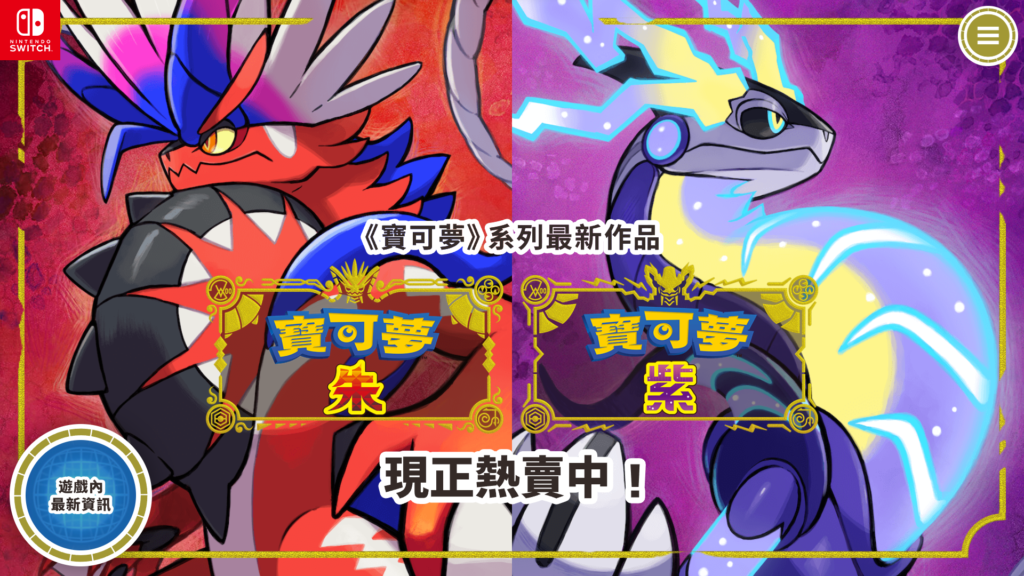
圖/取自《寶可夢 朱/紫》官方網站
本作的另一大特點便是創新的多主線劇情系統。玩家除了可以選擇經典道館挑戰去取得徽章,並在取得所有道館徽章後挑戰「冠軍測驗」,取得「冠軍級」頭銜外,本作更包含了「傳說之路」與「星塵★之路」兩篇劇情故事等待玩家們開發。玩家將在「傳說之路」中受角色派帕委託,尋找珍貴食材完成傳說級三明治;或是在「星塵★之路」中對抗擾亂秩序的「天星隊」。每個主線中都包含了許多使命與挑戰等待著玩家們,玩家們可在三個主線中自由挑選想推進的劇情,以自己喜歡的方式進行冒險,編織出屬於自己的冒險故事。
除了主線故事外,玩家們也會在冒險途中遇見各式各樣的野生寶可夢們,玩家可透過精靈球進行捕捉,與寶可夢們成為冒險夥伴,並完成屬於訓練家們的寶可夢圖鑑。除了常見於帕底亞地區各處的野生寶可夢外,《寶可夢 朱/紫》的世界中也存在著兩隻稀有的傳說級寶可夢,他們分別為僅能在《寶可夢 朱》中遇見的「故勒頓」與僅能在《寶可夢 紫》中遇見的「密勒頓」,玩家將在冒險途中邂逅與他們成為冒險夥伴,並乘坐在他們身上探索廣大的帕底亞地區。
在對戰系統方面,除了能與野生寶可夢、道館館主對戰外,玩家也可透過「對戰競技場」的功能與全世界的寶可夢訓練家進行對戰,訓練家們可在「自由對戰」、「級別對戰」與「網路大賽」三種類型的對戰中自行選擇與參與。不過,「對戰競技場」的功能目前暫時尚未完全開放,官方預計在2022年12月舉辦「級別對戰」,而「網路大賽」則預定於2023年春季舉辦。在帕底亞地區中,寶可夢們在對戰時可能會出現「太晶化」,太晶化後的寶可夢們除了會在對戰中綻放光芒外,自身的屬性與技能皆會出現變化,提供玩家們更多樣化的戰術組合,在對戰中讓對手措手不及。除了與其他訓練家們對戰外,玩家也可在本作中與最多四位訓練家們在同個世界中一同冒險,與朋友們一起探索帕底亞地區。
《寶可夢 朱/紫》將陸續舉辦容易出現特定寶可夢,或是容易出現特定太晶屬性寶可夢的期間限定「活動特設太晶團體戰」,玩家們可在活動特設太晶團體戰中與和家人、朋友及全世界的訓練家同心協力作戰,捕捉特定的寶可夢。首次舉辦的活動特設太晶團體戰為「伊布特輯」,於11月25日早上8點至11月28日早上8點(GMT+8),玩家將更容易在期間中遇到各種太晶屬性的伊布們。
為了紀念《寶可夢 朱/紫》的發售,台北101特別與寶可夢株式會社合作,於11月18日至20日為止,在101外牆的T-Pad燈網上播出穿插著《寶可夢 朱/紫》、《Pokémon GO》與《Pokémon UNITE》等多樣寶可夢作品內容的特別影片。自11月5日起,台北新光三越也舉辦了發售紀念活動,玩家可與現場的新葉喵、呆火鱷、潤水鴨模型拍照打卡,也可參加遊戲試玩、集換式卡牌遊戲新手教室與Pokémon Bingo Rally等活動,或逛逛限時開設的「寶可夢快閃店」,將自己喜歡的寶可夢周邊帶回家。新光三越將陸續於台中、台南與高雄等地的新光三越百貨、SKM Park Outlets舉辦紀念活動,有興趣的訓練家們可關注新光三越官方資訊。
※封面圖片取自《寶可夢 朱/紫》官方網站
©Pokémon. ©Nintendo/Creatures Inc./GAME FREAK inc.
©Nintendo, Creatures, GAME FREAK, TV Tokyo, ShoPro, JR Kikaku. ©Pokémon. TM and ® are trademarks of Nintendo.
Bearly Furcasting S3E30 - The Past, The Present, The Future
MOOBARKFLUFF! Click here to send us a comment or message about the show!
Moobarkfluff! Taebyn looses it right from the start, can he recover? Should we bring back Five Minute Furs, and Birthday shoutouts? Let us know in the chat. Taebyn explains how an abacus works. We hear a cute story about two foxes, and tell some really bad jokes, so join us for some fun and merriment! Moobarkfluff!
Thanks to all our listeners and to our staff: Bearly Normal, Rayne Raccoon, Taebyn, Cheetaro, TickTock, and Ziggy the Meme Weasel.
You can send us a message on Telegram at BFFT Chat, or via email at: bearlyfurcasting@gmail.com
Four Souls of a Trickster
Well this is interesting: Four Souls of Coyote is a new animated feature film currently in production at Cinemon Entertainment in Hungary. Animation World Network showed us the teaser trailer. “Inspired by Native American folklore, the film retells the story of the universe’s creation. Billed as a call to live in harmony with the environment and save the earth, the film features adventures with animals, magic, hunger, greed, and the sacred circle of all creations… The film comes to Hungarian cinemas in 2023.” No word yet on a North American release, but the film is being produced with an English-speaking voice cast.
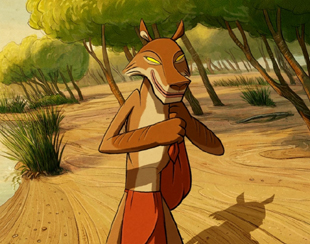
image c. 2022 Cinemon Entertainment
Autism and Comorbidity
I have noticed that over the years I have been rather emotionally dead inside. It seems I need strong stimulus to feel a little compassion towards others outside of myself. But this does not mean I am selfish per se. I seem caring on the outside. I am friendly with my friends I hang out with. I do chores for Mom as she has to go to work in the morning and I am home during the day. I hug her. I say I love her, but I never really feel it. When she would get home, she would have dinner and then sit on the couch [with] her iPad watching the news and relaxing while I was on the computer. I would occasionally spend some time with her on the couch, but I never really felt a connection with her doing that. Also, my intrusive thoughts would constantly make me feel bad and not happy. Too negative. Honestly, at night they make me want to commit suicide sometimes.
Sometimes I would just write my thoughts down on paper. Whatever thought popped into my head I would write down, and it is always very negative stuff.
Another example is the Thousand Oaks shooting. I was attending Moorpark College when it happened. However, since I only recently moved there, I never formed any real ties to the local area. Point is, after it happened one of our teachers talked to each of us individually in case we needed to talk to someone about what just happened. I personally never really felt anything towards the victims. I more or less went about [my business] as if nothing really happened. So when the teacher talked to me, I was rather nonchalant and did not seem very upset whatsoever. Later, I received an email asking me to [see] the Moorpark counselor. I did not understand why at the time, but looking back I think my teacher talked to someone about my lack of emotion. I went to see the counselor, but since I was perfectly fine that day, I was in and out in 5 minutes. Nothing wrong whatsoever. (Note, I was recently diagnosed with autism).
I do not actively go out and hurt anyone. However, I do not really go out and volunteer to help anyone. If it’s of any relevancy, part of the reason I am emotionally dead or think I am that way is because of a lot of trauma during my young adult years.
Recently, I got a lifeguard job, and [judging by] the first day alone, it seems like a good fit for me. That should help with my depression and give me encouragement as I now have a source of income. It seems really easy, a good thing for my OCD thoughts. (They are not as bad as they were many months ago, but sometimes they still bother me.)
I have to admit I am never happy. My day is boring day and day out, and sometimes I feel like I am far behind most people my age in their progress of life.
So, what are your thoughts? What do you think is going on, and how do you think I should proceed going forward?
Thank you.
Nicholas (age 26)
* * *
Dear Nicholas,
I am sorry for the struggles you are experiencing. Thank you for writing.
To make a full assessment of what's going on, I would ideally like to know more about your background, especially details about the trauma you mention only in passing. That said, my initial feeling is that all of this links with your autism. You don't say where you are on the autism spectrum, but be that as it may, autism is often associated with other emotional conditions. This comorbidity may involve all of the other problems you mention, including OCD, depression, and your lack of empathy for others.
You autism, combined with whatever trauma you might have suffered earlier, may have brought up or exacerbated these other emotional issues. Let's talk about each of these in turn:
- Lack of Empathy: A common trait of those with ASD is how they struggle to emotionally connect to others. In your letter, you seem concerned that your lack of empathy somehow puts you at risk of being a danger to others. I really don't think you need to worry about that. You are not a sociopath (if you were a sociopath, none of this would bother you and you wouldn't be writing to me); you simply have ASD.
- OCD: While people with autism often express symptoms of OCD, the two are also at times confused with each other. So, you might not have OCD per se. OCD involves repetitive and compulsive behaviors that a person cannot control and that have no real purpose other than to feed into a neurotic belief that if the action isn't performed something bad could happen. Autistic people, on the other hand, can engage in repetitive behavior because they find it soothing and reassuring.
- Depression: Depression can be tough to diagnose by medical professionals evaluating patients with ASD because their emotional behavior and facial expressions often differ significantly from nonautistic patients. But a number of studies show that people with ASD are, indeed, more likely to have mood disorders such as depression. In one article posted on the Autism Speaks website, it was reported: "The percentage of children rated by their parents as 'sometimes' to 'very often' contemplating or attempting suicide was 28 times greater for those with autism than those with typical development. It was 3 times less among those with autism than among the non-autistic children who had depression. Depression was also the strongest single predictor of suicidal thoughts or attempts among the children with autism."
In short, I suspect strongly that all these things you are experiencing, including your reaction to the Thousand Oaks shooting, are connected to your ASD. Therefore, the logical thing to ask is this: Are you being treated for your ASD? Are you seeing a professional? Have you consulted a doctor at any time? (I don't think your 5-minute consultation with a counselor counts).
I suggest you start by checking out the Autism Speaks website as a good place to find information and resources.
Don't worry that you might hurt someone (doubtful) and don't worry about competing with others your age (everyone is different and progresses at their own rate). But if you do have thoughts of suicide again and they get worse, please call the 988 hotline, or you can also chat at the website.
I hope this helps. Write again if you have more questions or concerns.
Bear Hugs,
Papabear
Strength From Within — And Puppets
Animation World Network let us know about Slumberkins, a new TV series that recently started streaming on Apple TV+. “Based on the plushie and book series line of the same name from Thrive co-founders and CEOs Kelly Oriard and Callie Christensen, AppleTV+’s Slumberkins series features characters Bigfoot, Unicorn, Sloth, Yak, and Fox as they explore a world of feelings in this puppet/2D animation show that empowers the emotional wellness of children through supportive storytelling. Slumberkins brings to life characters from Oriard’s and Christensen’s books who all experience a diverse range of emotional explorations, discovering that awareness of their own feelings and the ability to sort through those emotions lead to blossoming relationships and unwavering self-confidence. This was the main concept behind the original Slumberkins plushies, each with its own book series that includes interactive questions to support emotional growth.” And with puppets created by The Jim Henson Company no less.
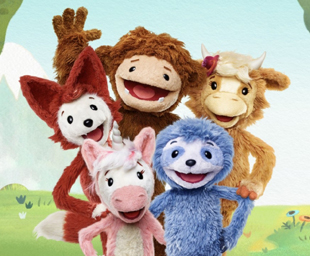
image c. 2022 Apple TV+
TigerTails Radio Season 14 Episode 17

TigerTails Radio Season 14 Episode 17. Join the Discord Chat: https://discord.gg/SQ5QuRf For a full preview of events and for previous episodes, please visit http://www.tigertailsradio.co.uk. See website for full breakdown of song credits, which is usually updated shortly after the show. If you like what we do and wish to throw some pennies our way to support us, please consider sending a little tip our way. https://streamlabs.com/tigertailsradio/tip * Please note, tips are made to support TigerTails Radio and are assumed as made with good faith, so are therefore non-refundable. Thank you for your support and understanding.
Find the Fox in Flight
There’s a new graphic novel out called Fox Fires, written and illustrated by Emilia Ojala. “Fox Fires is a fantasy-adventure that is inspired by Finnish folklore. ‘Fox Fires’ refers to the Northern Lights… The Fox Fires are a gate between this world and the land of the dead – it allows souls to visit their loved ones. But suddenly, the Fox Fires disappear. Our main character, a young raccoon dog named Raate, heads north to find what’s happened to Repo, the fire fox whose burning fur is said to make the Fox Fires appear in the sky. On her journey, Raate meets all kinds of interesting creatures, and also new friends.” The first volume is available in hardcover from Simon & Schuster.
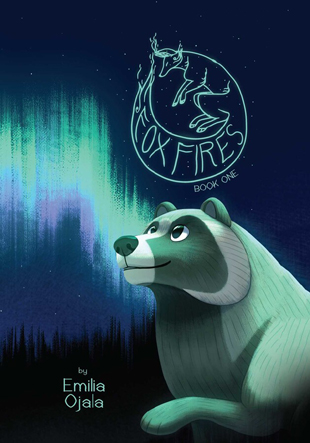
image c. 2022 Rocketship Entertainment
S10 Episode 1- First Time Congoing
So you’ve decided to take the plunge and go to your first furry con. Great! But how do you make the most of it or, just as important, how do you avoid it being a disaster? The cast discusses their do’s and don’t for first-time (or regular!) con-goers. Essential listening if you want to get the most out of your first (or next) con!
NOW LISTEN!
SHOW NOTES SPECIAL THANKS- Kevin Conroy – for so many wonderful years of work. We’ll miss you!
The following people have decided this month’s Fur What It’s Worth is worth actual cash! THANK YOU!
Tails Bursting out of Pants Supporters




Ashton Segal (Pic Pending), Nuka, Ichigo Okami
Fancy Supporter Tier
![]()
![]()

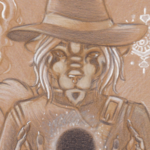
Rifka, the San Francisco Treat and Baldrik and Lufis (Pic Pending)
Deluxe Supporters Tier



Guardian Lion, Ashton Sergal, Harlan Fox, Plug (Pic Pending), Refractory Rictus (Pic Pending)
Plus Tier Supporters
- Ausi Kat
- Chaphogriff
- Lygris
- Bubblewhip
McRib Tier Supporters
- TyR
MUSIC
-
Intro: RetroSpecter – Cloud Fields (RetroSpecter Mix). USA: Unpublished, 2018. ©2011-2018 Fur What It’s Worth. Based on Fredrik Miller – Cloud Fields (Century Mix). USA: Bandcamp, 2011. ©2011 Fur What It’s Worth.
-
First Break: Dubstep Sport Rock Trailer, AShamalMusic, Creative Commons 2022.
-
Second Break: Light Me Up – Phlex. Argofox Remix, Creative Commons 2020.
-
Third Break: Rise – Ampyx. Argofox, Creative Commons 2021.
-
Closing: Cloud Fields (RetroSpecterChill Remix), USA: Unpublished, 2018. ©2011-2018 Fur What It’s Worth. Based on Fredrik Miller – Cloud Fields (Chill Out Mix). USA: Bandcamp, 2011. ©2011 Fur What It’s Worth.
7 Coolest Fursuit Accessories To Take Your Fursuit To The Next Level
Article Content

- What Is A Fursuit?
- What Are Fursuit Accessories?
- Where Can I Buy Fursuit Accessories?
- How Expensive Are Fursuit Accessories?
A fursuit is an animal costume worn by some members of the furry fandom known as furries. Not all furries wear them nor is it a requirement to wear one to be considered a furry. Much like a cosplayer, furries will often wear these fursuits when going to something like a meetup or a convention as it’s a chance to show off their work to other furries. Some fursuiters make their fursuits themselves, and others commission fursuit makers to create a professional fursuit for them with all the bells and whistles that come with it.
What Are Fursuit Accessories?Fursuit accessories on the other hand are little bits and bobs that don’t just come with your fursuit that can be added on afterward. These can range from cool little trinkets that can help further personalize your suit, to genuinely practical items that make wearing the suit for extended periods of time a lot more comfortable.
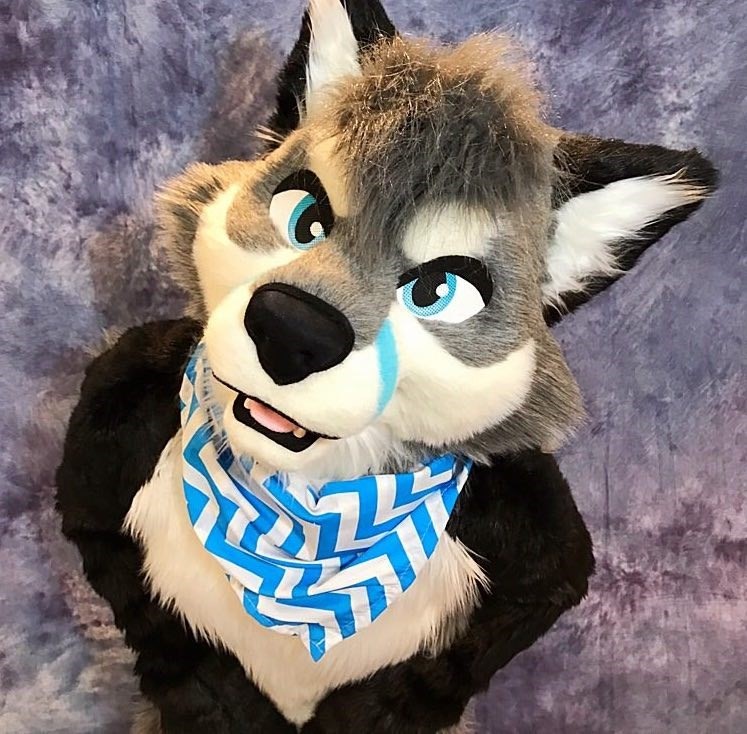 #1 Furry Badge
#1 Furry Badge
Furry badges are an awesome way to completely personalize your suit and stand out from the crowd. They are badges that contain an illustration of the owner’s fursona as well as the name of their fursona. The beauty of furry badges is that you don’t even have to be wearing a fursuit to wear a badge as a lot of people want to be known for their fursona anyway, regardless of whether or not they have a suit. The issue with these is that they can’t just be done by any furry artist unless you have access to some good badge printing. Otherwise, you’ll have to reach out to someone who both prints and creates furry badges.
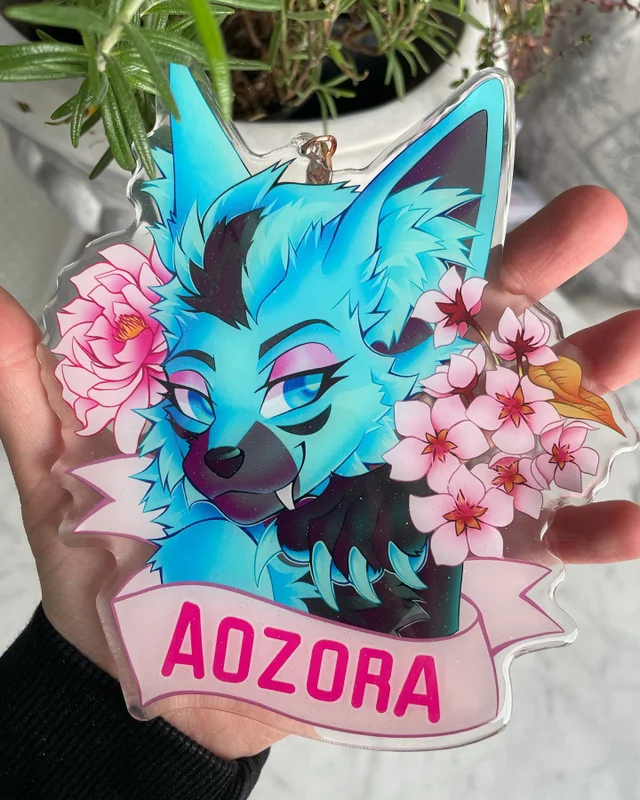
Furry Badge
Image via Reddit
#2 RingIf you’ve at the very least seen a fursuit, then, chances are you know that a standard ring isn’t going to fit the hand or foot of it. However, you’re in luck, because there are larger rings specifically made to fit fursuits. So if you’re really looking for a way to bling out your new suit, maybe try one of these.
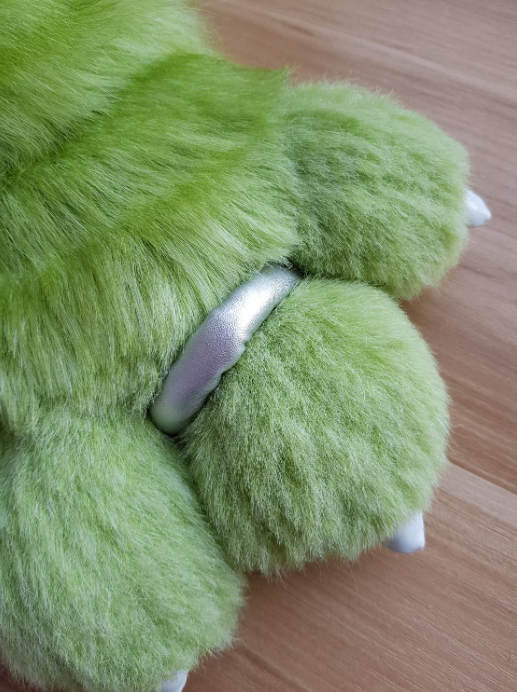
Furry Badge
Image via Reddit
#banner_1 { border-radius: 16px; padding: 52px 68px; background-image: url(/wp-content/uploads/2022/10/banner_1_img.png); background-repeat: no-repeat; background-size: 100% 100% } .fursonafy_banner_inner { width: 100%; max-width: 390px; } .fursonafy_banner_p:nth-child(1) { margin-bottom: 20px; } .fursonafy_banner_title { font-family: 'Poppins'; font-style: normal; font-weight: 600; font-size: 18px; line-height: 22px; color: #1D022E; } .fursonafy_banner_feedback_mob { display: none; } .fursonafy_banner_review_com { font-family: 'Poppins'; font-style: normal; font-weight: 600; font-size: 16px; line-height: 20px; color: #454349; padding: 0; padding-left: 20px; position: relative; top: -8px; } .fursonafy_banner_review_person { font-family: 'Lato'; font-style: normal; font-weight: 700; font-size: 12px; line-height: 16px; color: #454349; padding: 0; padding-left: 20px; } .fursonafy_banner_fursonafy_btn { width: 100%; padding: 16px 28px; max-width: 197px; height: 52px; font-family: 'Lato'; font-size: 14px; line-height: 1; text-align: center; font-weight: 600; text-transform: uppercase; color: #FFFFFF !important; background: #BC2EFF; border-radius: 6px 0px 6px 6px; border: none; cursor: pointer; display: flex; justify-content:center; align-items:center; margin-top: 30px; position: relative; } .fursonafy_banner_fursonafy_btn:hover { background: #1D022E; transition: 1s cubic-bezier(0.57, -0.43, 0.37, 1.1); } .fursonafy_banner_black_point { position: absolute; width: 16px; height: 16px; top: 0px; right: 0; background: #1D022E; border-radius: 0px 0px 0px 12px; } @media (min-width: 769px) and (max-width: 1240px) { .fursonafy_banner_inner { width: 74%; } } @media (max-width: 768px) { #banner_1 { border-radius: 28px; padding: 30px 24px; background-image: url(/wp-content/uploads/2022/10/banner_img_mob.png); background-repeat: no-repeat; background-size: 100% 100% } .fursonafy_banner_feedback { display: none; } .fursonafy_banner_feedback_mob { display: block; } .fursonafy_banner_inner { width: 100%; max-width: 100%; text-align: center; } .fursonafy_banner_p:nth-child(1) { margin-bottom: 10px; } .fursonafy_banner_review_com, .fursonafy_banner_review_person { padding-left: 0px; } .fursonafy_banner_review_com { top: 0; padding-top: 12px; padding-bottom: 8px; } .fursonafy_banner_fursonafy_btn { max-width: 100%; } }Given that you are already dressing up as an animal, why not slap on a trendy little collar just to personalize your fursuit that little bit more? This is a very fitting accessory for any dog or cat fursuit but it is obviously not exclusive to just them. The brilliant thing about collars is their diversity, they don’t even necessarily have to just be a classic old red collar, they can be spiked chokers, they can be vintage leather, the customizability of collars is amazing and it just adds that little bit of nuance to your suit.

Pride Fursuit Collars
Image via Fursuit Supplies
#4 PiercingsYes, it’s true, you can get piercings for even your fursuit and they can look pretty damn cool as well. These piercings can range from studs to fool hoop earrings and the best part is they can go on so many places on your suit. You can get septum piercings, ear lobe piercings (and pretty much any part of the ear), eyebrow piercings, etc, the options are so vast and the best part is, they’re also pretty affordable. You can get them from sellers like these on Etsy for great prices.
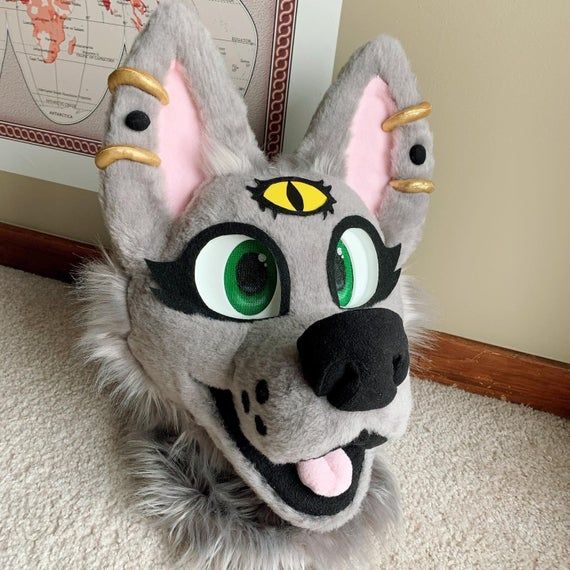
Fursuit Head With Piercings
Image via Pinterest
#5 PropsThis one may sound a bit vague so we’ll explain what we mean a little better. Props for your fursuit are little trinkets that you can carry around that just say a little bit more about your fursona. For example, you can get a prop bone, or if you’re feeling a little bit sillier you can get prop fried eggs that can sit on top of your fursuit’s head. The props don’t just have to stop at meaningless items though, you can commission props to be made for your suit if you want something that really sets your suit apart from the crowd.
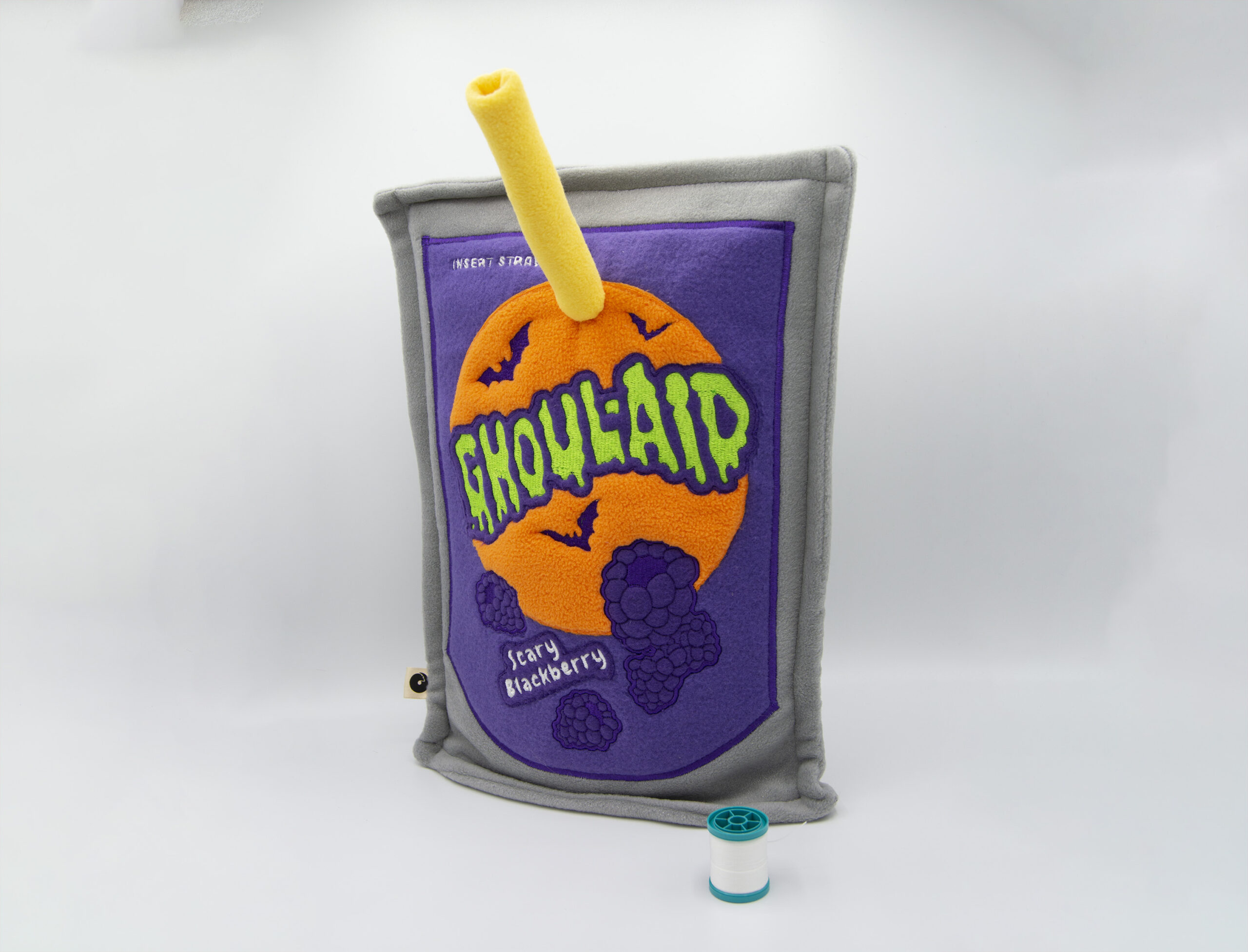
Fursuit Ghoul Aid Prop
Image via Curlworks
#6 Name TagThis kind of serves the same purpose as a badge but it serves it in a different way. What better way to compliment that shiny new collar you got than adding a fancy name tag to it? You don’t even have to introduce yourself, people can just read that little name tag around your neck and they can hopefully make an educated guess as to what your name is.
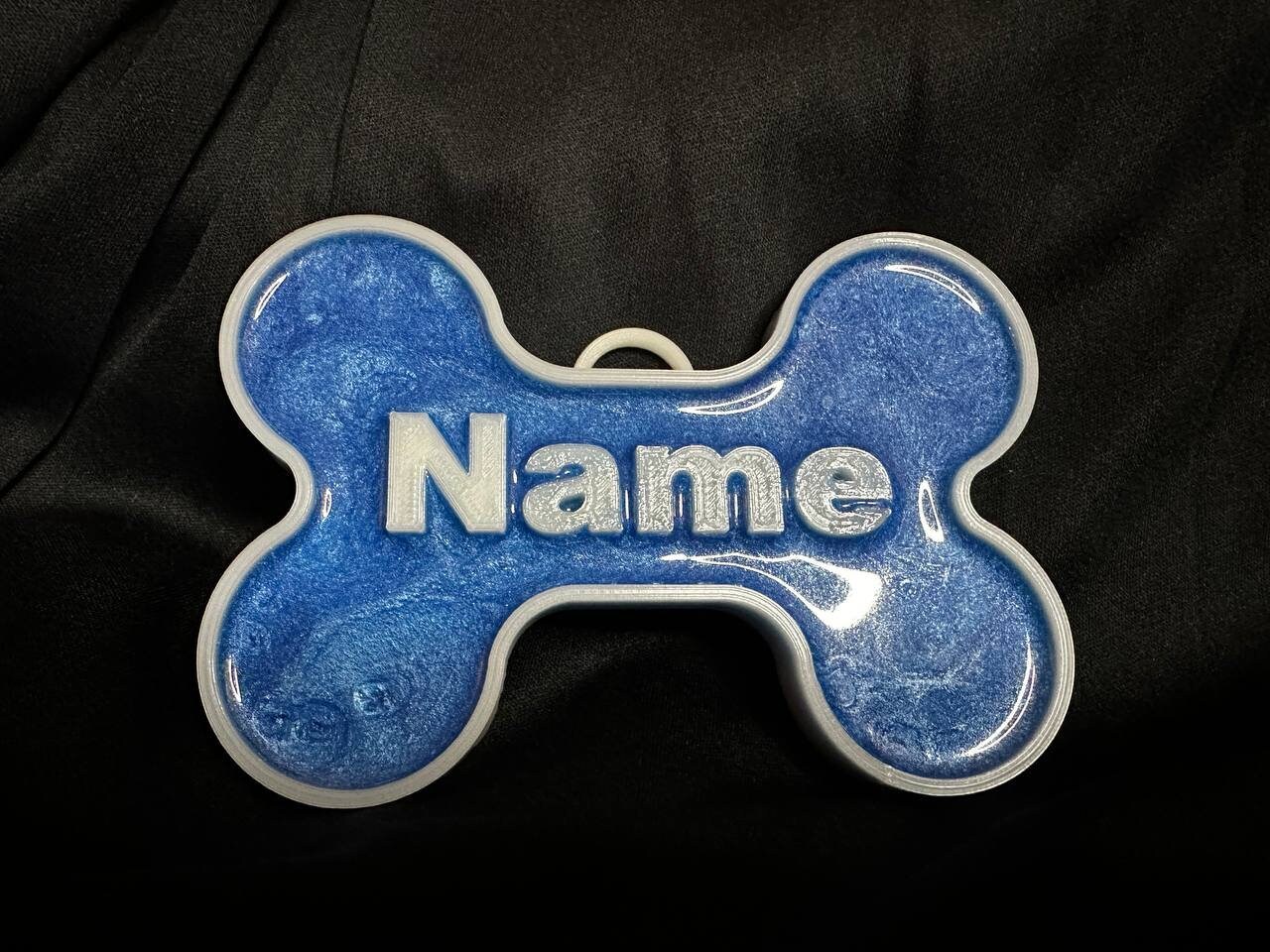
Fursuit Nametag
Image via Etsy
#7 Cooling VestA cooling vest may not make you look any more stylish than any of the previous entries but it is probably the most practical out of any of the things on this list. Wearing a fursuit all day, especially at conventions held in the summer, can start to feel like your very own personal sauna so a cooling vest is probably one of the best ways to combat this. The greatest part about a cooling vest as well is that it doesn’t affect the look of your suit at all, you can just throw it on underneath your suit and stay cool, unbeknownst to anyone else.

Not Specifically Made For Fursuit But A Cooling Best Nonetheless
Image via Sportsbikeshop
#banner_2 { border-radius: 16px; padding: 52px 68px; background-image: url(/wp-content/uploads/2022/10/banner_2_img.png); background-repeat: no-repeat; background-size: 100% 100% } .fursonafy_banner_inner { width: 100%; max-width: 390px; } .fursonafy_banner_p:nth-child(1) { margin-bottom: 20px; } .fursonafy_banner_title { font-family: 'Poppins'; font-style: normal; font-weight: 600; font-size: 18px; line-height: 22px; color: #1D022E; } .fursonafy_banner_feedback_mob { display: none; } .fursonafy_banner_review_com { font-family: 'Poppins'; font-style: normal; font-weight: 600; font-size: 16px; line-height: 20px; color: #454349; padding: 0; padding-left: 20px; position: relative; top: -8px; } .fursonafy_banner_review_person { font-family: 'Lato'; font-style: normal; font-weight: 700; font-size: 12px; line-height: 16px; color: #454349; padding: 0; padding-left: 20px; } .fursonafy_banner_fursonafy_btn { width: 100%; padding: 16px 28px; max-width: 197px; height: 52px; font-family: 'Lato'; font-size: 14px; line-height: 1; text-align: center; font-weight: 600; text-transform: uppercase; color: #FFFFFF !important; background: #BC2EFF; border-radius: 6px 0px 6px 6px; border: none; cursor: pointer; display: flex; margin-top: 30px; justify-content:center; align-items:center; position: relative; } .fursonafy_banner_fursonafy_btn:hover { background: #1D022E; transition: 1s cubic-bezier(0.57, -0.43, 0.37, 1.1); } .fursonafy_banner_black_point { position: absolute; width: 16px; height: 16px; top: 0px; right: 0; background: #1D022E; border-radius: 0px 0px 0px 12px; } @media (min-width: 769px) and (max-width: 1240px) { .fursonafy_banner_inner { width: 74%; } } @media (max-width: 768px) { #banner_2 { border-radius: 28px; padding: 30px 24px; background-image: url(/wp-content/uploads/2022/10/banner_img_mob.png); background-repeat: no-repeat; background-size: 100% 100% } .fursonafy_banner_feedback { display: none; } .fursonafy_banner_feedback_mob { display: block; } .fursonafy_banner_inner { width: 100%; max-width: 100%; text-align: center; } .fursonafy_banner_p:nth-child(1) { margin-bottom: 10px; } .fursonafy_banner_review_com, .fursonafy_banner_review_person { padding-left: 0px; } .fursonafy_banner_review_com { top: 0; padding-top: 12px; padding-bottom: 8px; } .fursonafy_banner_fursonafy_btn { max-width: 100%; } }Etsy : This is likely the most reliable place to get your fursuit accessories from as there are just so many to choose from and they are often customizable. Not to mention you can quite easily get in touch with the seller to make any queries about the customization of things like nametags and badges or just general queries about the product they are selling.
FursuitSupplies : These guys offer some awesome accessories and the best part is they are a trusted private seller, meaning there is no risk of some sketchy sellers trying to scam you out of your money for some cheap plastic. While most of the sales are for faux fur and other fursuit supplies as the name suggests, they do offer some great alternative products.
Lobitoworks : While they don’t have the largest stock of items, they have some of the coolest props you’ll find like comically large plush cigars or massive spiked collars. If you’re looking for something that really adds the final touches to your suit, I recommend Lobitoworks as your guy.
How Expensive Are Fursuit Accessories?The best part about fursuit accessories is that for the most part, they are relatively inexpensive. I say relatively because if you are willing to spend upwards of $3000 on a fursuit, then I can only imagine that you aren’t extremely opposed to throwing another $15 – $20 at a cute little accessory for your suit.
Share PostThe post 7 Coolest Fursuit Accessories To Take Your Fursuit To The Next Level appeared first on Fursonafy.
For Once, Yes to the Anchovies
Sheesh, what have we been missing on line? Things like this, apparently: “New York Times bestselling Mac Barnett and Caldecott Honor award-winning illustrator Shawn Harris turn their massively popular The First Cat in Space Ate Pizza live cartoon into an action-packed and hysterical graphic novel series… Something terrible is happening in the skies! Rats are eating the moon! There’s only one hero for the job, a bold and fearsome beast bioengineered in a secret lab to be the moon’s savior and Earth’s last hope! And that hero is . . . a cat. A cat who will be blasted into space! Accompanied by the imperious Moon Queen and LOZ 4000, a toenail clipping robot, the First Cat in Space journeys across a fantastic lunar landscape in a quest to save the world. Will these unlikely heroes save the moon in time?” Find out now, courtesy of Harper Collins.
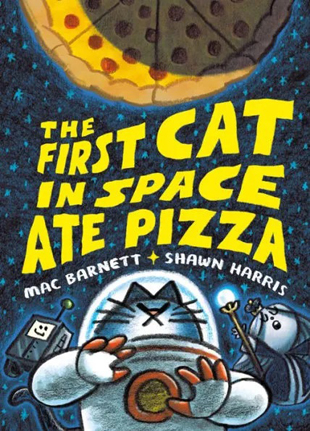
image c. 2022 Harper Collins

